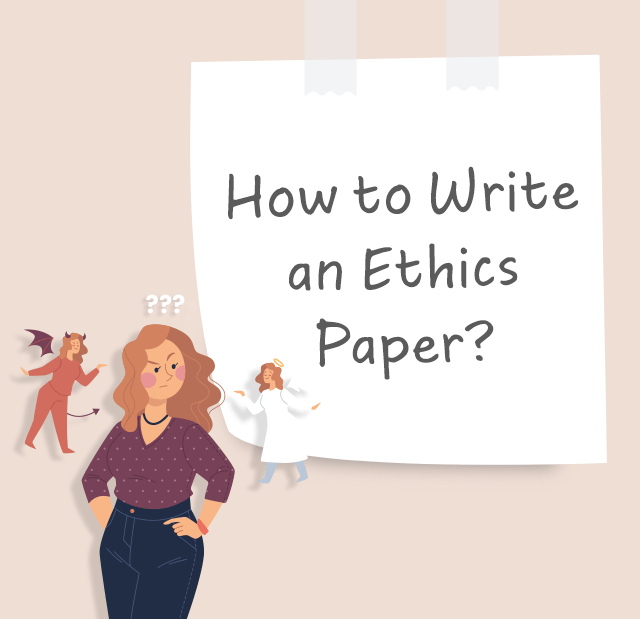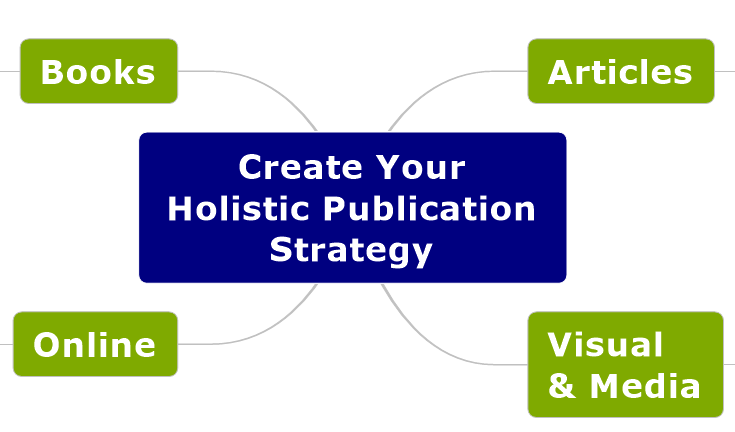- Essay Guides
- Other Essays
- How to Write an Ethics Paper: Guide & Ethical Essay Examples
- Speech Topics
- Basics of Essay Writing
- Essay Topics
- Main Academic Essays
- Research Paper Topics
- Basics of Research Paper Writing
- Miscellaneous
- Chicago/ Turabian
- Data & Statistics
- Methodology
- Admission Writing Tips
- Admission Advice
- Other Guides
- Student Life
- Studying Tips
- Understanding Plagiarism
- Academic Writing Tips
- Basics of Dissertation & Thesis Writing
- Research Paper Guides
- Formatting Guides
- Basics of Research Process
- Admission Guides
- Dissertation & Thesis Guides

How to Write an Ethics Paper: Guide & Ethical Essay Examples

Table of contents
Use our free Readability checker
An ethics essay is a type of academic writing that explores ethical issues and dilemmas. Students should evaluates them in terms of moral principles and values. The purpose of an ethics essay is to examine the moral implications of a particular issue, and provide a reasoned argument in support of an ethical perspective.
Writing an essay about ethics is a tough task for most students. The process involves creating an outline to guide your arguments about a topic and planning your ideas to convince the reader of your feelings about a difficult issue. If you still need assistance putting together your thoughts in composing a good paper, you have come to the right place. We have provided a series of steps and tips to show how you can achieve success in writing. This guide will tell you how to write an ethics paper using ethical essay examples to understand every step it takes to be proficient. In case you don’t have time for writing, get in touch with our professional essay writers for hire . Our experts work hard to supply students with excellent essays.
What Is an Ethics Essay?
An ethics essay uses moral theories to build arguments on an issue. You describe a controversial problem and examine it to determine how it affects individuals or society. Ethics papers analyze arguments on both sides of a possible dilemma, focusing on right and wrong. The analysis gained can be used to solve real-life cases. Before embarking on writing an ethical essay, keep in mind that most individuals follow moral principles. From a social context perspective, these rules define how a human behaves or acts towards another. Therefore, your theme essay on ethics needs to demonstrate how a person feels about these moral principles. More specifically, your task is to show how significant that issue is and discuss if you value or discredit it.
Purpose of an Essay on Ethics
The primary purpose of an ethics essay is to initiate an argument on a moral issue using reasoning and critical evidence. Instead of providing general information about a problem, you present solid arguments about how you view the moral concern and how it affects you or society. When writing an ethical paper, you demonstrate philosophical competence, using appropriate moral perspectives and principles.
Things to Write an Essay About Ethics On
Before you start to write ethics essays, consider a topic you can easily address. In most cases, an ethical issues essay analyzes right and wrong. This includes discussing ethics and morals and how they contribute to the right behaviors. You can also talk about work ethic, code of conduct, and how employees promote or disregard the need for change. However, you can explore other areas by asking yourself what ethics mean to you. Think about how a recent game you watched with friends started a controversial argument. Or maybe a newspaper that highlighted a story you felt was misunderstood or blown out of proportion. This way, you can come up with an excellent topic that resonates with your personal ethics and beliefs.
Ethics Paper Outline
Sometimes, you will be asked to submit an outline before writing an ethics paper. Creating an outline for an ethics paper is an essential step in creating a good essay. You can use it to arrange your points and supporting evidence before writing. It also helps organize your thoughts, enabling you to fill any gaps in your ideas. The outline for an essay should contain short and numbered sentences to cover the format and outline. Each section is structured to enable you to plan your work and include all sources in writing an ethics paper. An ethics essay outline is as follows:
- Background information
- Thesis statement
- Restate thesis statement
- Summarize key points
- Final thoughts on the topic
Using this outline will improve clarity and focus throughout your writing process.
Ethical Essay Structure
Ethics essays are similar to other essays based on their format, outline, and structure. An ethical essay should have a well-defined introduction, body, and conclusion section as its structure. When planning your ideas, make sure that the introduction and conclusion are around 20 percent of the paper, leaving the rest to the body. We will take a detailed look at what each part entails and give examples that are going to help you understand them better. Refer to our essay structure examples to find a fitting way of organizing your writing.
Ethics Paper Introduction
An ethics essay introduction gives a synopsis of your main argument. One step on how to write an introduction for an ethics paper is telling about the topic and describing its background information. This paragraph should be brief and straight to the point. It informs readers what your position is on that issue. Start with an essay hook to generate interest from your audience. It can be a question you will address or a misunderstanding that leads up to your main argument. You can also add more perspectives to be discussed; this will inform readers on what to expect in the paper.
Ethics Essay Introduction Example
You can find many ethics essay introduction examples on the internet. In this guide, we have written an excellent extract to demonstrate how it should be structured. As you read, examine how it begins with a hook and then provides background information on an issue.
Imagine living in a world where people only lie, and honesty is becoming a scarce commodity. Indeed, modern society is facing this reality as truth and deception can no longer be separated. Technology has facilitated a quick transmission of voluminous information, whereas it's hard separating facts from opinions.
In this example, the first sentence of the introduction makes a claim or uses a question to hook the reader.
Ethics Essay Thesis Statement
An ethics paper must contain a thesis statement in the first paragraph. Learning how to write a thesis statement for an ethics paper is necessary as readers often look at it to gauge whether the essay is worth their time.
When you deviate away from the thesis, your whole paper loses meaning. In ethics essays, your thesis statement is a roadmap in writing, stressing your position on the problem and giving reasons for taking that stance. It should focus on a specific element of the issue being discussed. When writing a thesis statement, ensure that you can easily make arguments for or against its stance.
Ethical Paper Thesis Example
Look at this example of an ethics paper thesis statement and examine how well it has been written to state a position and provide reasons for doing so:
The moral implications of dishonesty are far-reaching as they undermine trust, integrity, and other foundations of society, damaging personal and professional relationships.
The above thesis statement example is clear and concise, indicating that this paper will highlight the effects of dishonesty in society. Moreover, it focuses on aspects of personal and professional relationships.
Ethics Essay Body
The body section is the heart of an ethics paper as it presents the author's main points. In an ethical essay, each body paragraph has several elements that should explain your main idea. These include:
- A topic sentence that is precise and reiterates your stance on the issue.
- Evidence supporting it.
- Examples that illustrate your argument.
- A thorough analysis showing how the evidence and examples relate to that issue.
- A transition sentence that connects one paragraph to another with the help of essay transitions .
When you write an ethics essay, adding relevant examples strengthens your main point and makes it easy for others to understand and comprehend your argument.
Body Paragraph for Ethics Paper Example
A good body paragraph must have a well-defined topic sentence that makes a claim and includes evidence and examples to support it. Look at part of an example of ethics essay body paragraph below and see how its idea has been developed:
Honesty is an essential component of professional integrity. In many fields, trust and credibility are crucial for professionals to build relationships and success. For example, a doctor who is dishonest about a potential side effect of a medication is not only acting unethically but also putting the health and well-being of their patients at risk. Similarly, a dishonest businessman could achieve short-term benefits but will lose their client’s trust.
Ethics Essay Conclusion
A concluding paragraph shares the summary and overview of the author's main arguments. Many students need clarification on what should be included in the essay conclusion and how best to get a reader's attention. When writing an ethics paper conclusion, consider the following:
- Restate the thesis statement to emphasize your position.
- Summarize its main points and evidence.
- Final thoughts on the issue and any other considerations.
You can also reflect on the topic or acknowledge any possible challenges or questions that have not been answered. A closing statement should present a call to action on the problem based on your position.
Sample Ethics Paper Conclusion
The conclusion paragraph restates the thesis statement and summarizes the arguments presented in that paper. The sample conclusion for an ethical essay example below demonstrates how you should write a concluding statement.
In conclusion, the implications of dishonesty and the importance of honesty in our lives cannot be overstated. Honesty builds solid relationships, effective communication, and better decision-making. This essay has explored how dishonesty impacts people and that we should value honesty. We hope this essay will help readers assess their behavior and work towards being more honest in their lives.
In the above extract, the writer gives final thoughts on the topic, urging readers to adopt honest behavior.
How to Write an Ethics Paper?
As you learn how to write an ethics essay, it is not advised to immediately choose a topic and begin writing. When you follow this method, you will get stuck or fail to present concrete ideas. A good writer understands the importance of planning. As a fact, you should organize your work and ensure it captures key elements that shed more light on your arguments. Hence, following the essay structure and creating an outline to guide your writing process is the best approach. In the following segment, we have highlighted step-by-step techniques on how to write a good ethics paper.
1. Pick a Topic
Before writing ethical papers, brainstorm to find ideal topics that can be easily debated. For starters, make a list, then select a title that presents a moral issue that may be explained and addressed from opposing sides. Make sure you choose one that interests you. Here are a few ideas to help you search for topics:
- Review current trends affecting people.
- Think about your personal experiences.
- Study different moral theories and principles.
- Examine classical moral dilemmas.
Once you find a suitable topic and are ready, start to write your ethics essay, conduct preliminary research, and ascertain that there are enough sources to support it.
2. Conduct In-Depth Research
Once you choose a topic for your essay, the next step is gathering sufficient information about it. Conducting in-depth research entails looking through scholarly journals to find credible material. Ensure you note down all sources you found helpful to assist you on how to write your ethics paper. Use the following steps to help you conduct your research:
- Clearly state and define a problem you want to discuss.
- This will guide your research process.
- Develop keywords that match the topic.
- Begin searching from a wide perspective. This will allow you to collect more information, then narrow it down by using the identified words above.
3. Develop an Ethics Essay Outline
An outline will ease up your writing process when developing an ethic essay. As you develop a paper on ethics, jot down factual ideas that will build your paragraphs for each section. Include the following steps in your process:
- Review the topic and information gathered to write a thesis statement.
- Identify the main arguments you want to discuss and include their evidence.
- Group them into sections, each presenting a new idea that supports the thesis.
- Write an outline.
- Review and refine it.
Examples can also be included to support your main arguments. The structure should be sequential, coherent, and with a good flow from beginning to end. When you follow all steps, you can create an engaging and organized outline that will help you write a good essay.
4. Write an Ethics Essay
Once you have selected a topic, conducted research, and outlined your main points, you can begin writing an essay . Ensure you adhere to the ethics paper format you have chosen. Start an ethics paper with an overview of your topic to capture the readers' attention. Build upon your paper by avoiding ambiguous arguments and using the outline to help you write your essay on ethics. Finish the introduction paragraph with a thesis statement that explains your main position. Expand on your thesis statement in all essay paragraphs. Each paragraph should start with a topic sentence and provide evidence plus an example to solidify your argument, strengthen the main point, and let readers see the reasoning behind your stance. Finally, conclude the essay by restating your thesis statement and summarizing all key ideas. Your conclusion should engage the reader, posing questions or urging them to reflect on the issue and how it will impact them.
5. Proofread Your Ethics Essay
Proofreading your essay is the last step as you countercheck any grammatical or structural errors in your essay. When writing your ethic paper, typical mistakes you could encounter include the following:
- Spelling errors: e.g., there, they’re, their.
- Homophone words: such as new vs. knew.
- Inconsistencies: like mixing British and American words, e.g., color vs. color.
- Formatting issues: e.g., double spacing, different font types.
While proofreading your ethical issue essay, read it aloud to detect lexical errors or ambiguous phrases that distort its meaning. Verify your information and ensure it is relevant and up-to-date. You can ask your fellow student to read the essay and give feedback on its structure and quality.
Ethics Essay Examples
Writing an essay is challenging without the right steps. There are so many ethics paper examples on the internet, however, we have provided a list of free ethics essay examples below that are well-structured and have a solid argument to help you write your paper. Click on them and see how each writing step has been integrated. Ethics essay example 1
Ethics essay example 2
Ethics essay example 3
Ethics essay example 4
College ethics essay example 5
Ethics Essay Writing Tips
When writing papers on ethics, here are several tips to help you complete an excellent essay:
- Choose a narrow topic and avoid broad subjects, as it is easy to cover the topic in detail.
- Ensure you have background information. A good understanding of a topic can make it easy to apply all necessary moral theories and principles in writing your paper.
- State your position clearly. It is important to be sure about your stance as it will allow you to draft your arguments accordingly.
- When writing ethics essays, be mindful of your audience. Provide arguments that they can understand.
- Integrate solid examples into your essay. Morality can be hard to understand; therefore, using them will help a reader grasp these concepts.
Bottom Line on Writing an Ethics Paper
Creating this essay is a common exercise in academics that allows students to build critical skills. When you begin writing, state your stance on an issue and provide arguments to support your position. This guide gives information on how to write an ethics essay as well as examples of ethics papers. Remember to follow these points in your writing:
- Create an outline highlighting your main points.
- Write an effective introduction and provide background information on an issue.
- Include a thesis statement.
- Develop concrete arguments and their counterarguments, and use examples.
- Sum up all your key points in your conclusion and restate your thesis statement.
Contact our academic writing platform and have your challenge solved. Here, you can order essays and papers on any topic and enjoy top quality.

Daniel Howard is an Essay Writing guru. He helps students create essays that will strike a chord with the readers.
You may also like


Encyclopedia of Business and Professional Ethics pp 1–6 Cite as
Academic Ethics and Academic Integrity
- Deborah Poff 3
- Living reference work entry
- First Online: 22 June 2020
425 Accesses
2 Citations
Research and scholarly publishing ; Responsible conduct in teaching ; Scholarly integrity ; Teaching ethics/research ethics
Introduction
Academic Ethics and Academic Integrity refers to responsible and ethical conduct in university-based teaching, student performance, research, and in the dissemination of research through publishing. The history of Academic Ethics might be considered opaque given the breadth of what can meaningfully be considered relevant to the topics that will be discussed in this entry. While this may be true in terms of long-term historical roots, this is not the case with respect to the contemporary discussion of academic integrity from the latter part of the twentieth century until now, both with respect to teaching and to research practices. This article will address these matters.
Some would begin any discussion of academic integrity with an introduction to the literature on the purpose of a university. This is a topic in itself so it will only be noted...
This is a preview of subscription content, log in via an institution .
Dewey J (1916) Democracy and education. (c. 2001, The Pennsylvania State University)
Google Scholar
Henning MA, Nejadghanbar H, Abaraogu U (2018) Developing a revised cross-cultural academic integrity questionnaire (CCAIQ-2). J Acad Ethics 16(3):241–256
Article Google Scholar
McCabe D, Butterfield K, Trevino L (2012) Cheating in college: why students do it and what educators can do about it. John Hopkins University Press, Baltimore
Mill JS (1863) Utilitarianism. Longman, Green, Longman, Roberts and Green, London
Orr J Jr (2018) Developing a campus academic integrity education seminar. J Acad Ethics 16(3):195–210
Poff D (2003) The duty to protect: privacy and the public university. J Acad Ethics 1(1):3–10
The Society for Teaching and Learning in Higher Education Ethical Principles in University Teaching (1996) https://www.stlhe.ca/awards/3m-national-teaching-fellowships/initiatives/ethical-principles-in-university-teaching/ . Last accessed 27 Feb 2020
Wei T, Chestnut SR, Barnard-Brak L, Schmidt M (2014) University students’ perceptions of academic cheating: triangulating quantitative and qualitative findings. J Acad Ethics 12(4):287–298
Young R, Miller GNS, Barnhardt CL (2018) From policies to principles: the effects of campus climate on academic integrity, a mixed methods study. J Acad Ethics 16(1):1–18
Download references
Acknowledgments
It should be noted that some of the material for this entry is drawn from a keynote address by the author entitled “The Role of Research Integrity and Publication Ethics and University Education for the Twenty-First Century” presented at the European Network for Academic Integrity Conference held at MRUniversity held in Vilnius, Lithuania, June 19, 2019.
Author information
Authors and affiliations.
Past President, Brandon University, Ottawa, ON, Canada
Deborah Poff
You can also search for this author in PubMed Google Scholar
Corresponding author
Correspondence to Deborah Poff .
Editor information
Editors and affiliations.
Ottawa, ON, Canada
Deborah C Poff
Alex C. Michalos
Section Editor information
Leading with Integrity, Ottawa, ON, Canada
Deborah C. Poff CM, PhD
Rights and permissions
Reprints and permissions
Copyright information
© 2020 Springer Nature Switzerland AG
About this entry
Cite this entry.
Poff, D. (2020). Academic Ethics and Academic Integrity. In: Poff, D., Michalos, A. (eds) Encyclopedia of Business and Professional Ethics. Springer, Cham. https://doi.org/10.1007/978-3-319-23514-1_405-1
Download citation
DOI : https://doi.org/10.1007/978-3-319-23514-1_405-1
Received : 26 March 2020
Accepted : 03 April 2020
Published : 22 June 2020
Publisher Name : Springer, Cham
Print ISBN : 978-3-319-23514-1
Online ISBN : 978-3-319-23514-1
eBook Packages : Religion and Philosophy Reference Module Humanities and Social Sciences Reference Module Business, Economics and Social Sciences
- Publish with us
Policies and ethics
- Find a journal
- Track your research
Writing Ethical Papers: Top Tips to Ace Your Assignment
17 August, 2021
13 minutes read
Author: Kate Smith
Writing a complex essay paper can be a tough task for any student, especially for those who do not have their skills developed well or do not have enough time for lengthy assignments. At the same time, the majority of college students need to keep their grades high to maintain their right to receive merit-based scholarships and continue their studies the next year. To help you with your ethical papers writing, we created this guide. Below, you will find out what an ethical paper is, how to structure it and write it efficiently.

What is an Ethical Paper?
An ethics paper is a type of an argumentative assignment that deals with a certain ethical problem that a student has to describe and solve. Also, it can be an essay where a certain controversial event or concept is elaborated through an ethical lens (e.g. moral rules and principles), or a certain ethical dilemma is explained. Since ethics is connected to moral concepts and choices, a student needs to have a fair knowledge of philosophy and get ready to answer questions related to relationships, justice, professional and social duties, the origin of good and evil, etc., to write a quality paper. Also, writing an ethics paper implies that a student should process a great amount of information regarding their topic and analyze it according to paper terms.
General Aspects of Writing an Ethics Paper
Understanding the ethical papers’ features.
Every essay has differences and features that make it unique. Writing ethical papers implies that a student will use their knowledge of morality and philosophy to resolve a certain ethical dilemma or solve a situation. It can also be a paper in which a student needs to provide their reasoning on ethical or legal circumstances that follow a social issue. Finally, it can be an assignment in which an ethical concept and its application are described. On the contrary, a history essay deals with events that took place somewhen earlier, while a narrative essay is a paper where students demonstrate their storytelling skills, etc.
Defining What Type of Essay Should Be Written
Most of the time, ethical paper topics imply that a student will write an argumentative essay; however, ethics essays can also be descriptive and expository. Each of these essay types has different guidelines for writing, so be sure you know them before you start writing your papers on ethics. In case you missed this step in your ethical paper preparation stage, you would end up writing a paper that misses many important points.
Studying the Ethical Paper Guidelines
Once you get your ethical paper assignment, look through the guidelines that your instructor provided to you. If you receive them during the class, don’t hesitate to pose any questions immediately to remove any misunderstanding before writing an ethics paper outline, or ask for references that you need to use. When you are about to write your first draft, don’t rush: read the paper instructions once again to make sure you understand what is needed from you.
Paying Attention to the Paper Topic
The next thing you need to pay attention to is the ethical paper topic: once you are given one, make sure it falls into the scope of your educational course. After that, consider what additional knowledge may be needed to elaborate on your topic and think about what courses of your program could be helpful for it. Once you are done, read through your topic again to recheck whether you understand your assignment right.
Understanding the Notions of Ethical Arguments, Ethical and Legal Implications, and Ethical Dilemma
Last but not least, another important factor is that a student has to understand the basic terms of the assignment to write a high-quality paper. Ethical arguments are a set of moral rules that are used to defend your position on an ethical issue stated in your essay topic. We refer to ethical versus legal implications when we think about the compensation for certain ethical dilemma outcomes and whether it should be a moral punishment or legal judgment. An ethical dilemma itself refers to a problem or situation which makes an individual doubt what position to take: e.g, abortion, bribery, corruption, etc.
Writing Outline and Structure of an Ethics Paper
Every essay has a structure that makes it a solid piece of writing with straight reasoning and argumentation, and an ethics paper is not an exclusion. This paper has an introduction, body paragraphs, and conclusion. Below, we will describe how each part of ethical papers should be organized and what information they should contain.
First comes the introduction. It is the opening part of your paper which helps a reader to get familiar with your topic and understand what your paper will be about. Therefore, it should contain some information on your ethics paper topics and a thesis statement, which is a central statement of your paper.
The essay body is the most substantive part of your essay where all the reasoning and arguments should be presented. Each paragraph should contain an argument that supports or contradicts your thesis statement and pieces of evidence to support your position. Pick at least three arguments to make your position clear in your essay, and then your paper will be considered well-structured.
The third part of an ethics paper outline is a conclusion, which is a finishing essay part. Its goal is to wrap up the whole essay and make the author’s position clear for the last time. The thoughtful formulation in this essay part should be especially clear and concise to demonstrate the writer’s ability to make conclusions and persuade readers.
Also, don’t forget to include the works cited page after your writing. It should mention all the reference materials that you used in your paper in the order of appearance or in the alphabetical one. This page should be formatted according to the assigned formatting style. Most often, the most frequently used format for ethical papers is APA.
20 Examples of Ethical Paper Topics
- Are there any issues in the 21st century that we can consider immoral and why?
- What is corporate ethics?
- Why is being selfish no longer an issue in 2023?
- Euthanasia: pros and cons
- Marijuana legalization: should it be allowed all over the world?
- Is abortion an ethical issue nowadays?
- Can we invent a universal religion appropriate for all?
- Is the church necessary to pray to God?
- Can we forgive infidelity and should we do it?
- How to react if you are witnessing high school bullying?
- What are the ways to respond to a family abusing individual?
- How to demand your privacy protection in a digital world?
- The history of the American ethical thought
- Can war be ethical and what should the conflicting sides do to make it possible?
- Ethical issues of keeping a zoo in 2023
- Who is in charge of controlling the world’s population?
- How to achieve equality in the world’s rich and poor gap?
- Is science ethical?
- How ethical is genetic engineering?
- Why many countries refuse to go back to carrying out the death penalty?
Ethical Papers Examples
If you still have no idea about how to write an ethics paper, looking through other students’ successful examples is always a good idea. Below, you can find a relevant ethics paper example that you can skim through and see how to build your reasoning and argumentation in your own paper.
https://www.currentschoolnews.com/education-news/ethics-essay-examples/
https://sites.psu.edu/academy/2014/11/18/essay-2-personal-ethics-and-decision-making/
Ethical Papers Writing Tips
Choose a topic that falls into the ethics course program.
In case you were not given the ethics paper topic, consider choosing it yourself. To do that, brainstorm the ethical issues that fascinate you enough to do research. List all these issues on a paper sheet and then cross out those that are too broad or require expertise that you don’t have. The next step you need to take is to choose three or four ethical topics for papers from the list and try to do a quick search online to find out whether these topics are elaborated enough to find sources and reference materials on them. Last, choose one topic that you like the most and find the most relevant one in terms of available data for reference.
Do your research
Once the topic is chosen and organized, dive deeper into it to find the most credible, reliable, and trusted service. Use your university library, online scientific journals, documentaries, and other sources to get the information from. Remember to take notes while working with every new piece of reference material to not forget the ideas that you will base your argumentation on.
Follow the guidelines for a paper outline
During the preparation for your ethical paper and the process of writing it, remember to follow your professor’s instructions (e.g. font, size, spacing, citation style, etc.). If you neglect them, your grade for the paper will decrease significantly.
Write the essay body first
Do not rush to start writing your ethics papers from the very beginning; to write a good essay, you need to have your outline and thesis statement first. Then, go to writing body paragraphs to demonstrate your expertise on the issue you are writing about. Remember that one supporting idea should be covered in one paragraph and should be followed by the piece of evidence that confirms it.
Make sure your introduction and conclusion translate the same message
After your essay body is done, write a conclusion and an introduction for your paper. The main tip regarding these ethics paper parts is that you should make them interrelated: your conclusion has to restate your introduction but not repeat it. Also, a conclusion should wrap up your writing and make it credible for the audience.
Add citations
Every top-quality paper has the works cited page and citations to demonstrate that the research on the topic has been carried out. Therefore, do not omit this point when formatting your paper: add all the sources to the works cited page and pay attention to citing throughout the text. The latter should be done according to the formatting style indicated in your instructions.
Edit your paper
Last but not least is the editing and proofreading stage that you need to carry out before you submit your paper to your instructor. Consider keeping your first draft away from sight for a day or two to have a rest, and then go back to check it for errors and redundant phrases. Don’t rush to change anything immediately after finishing your writing since you are already tired and less focused, so some mistakes may be missed.
Writing Help by Handmadewriting
If you feel that you need help with writing an ethics paper in view of its chellnging nature, you can contact us and send an order through a respective button. You can add your paper details by following all steps of the order placing process that you will find on the website. Once your order is placed, we will get back to you as soon as possible. You will be able to contact your essay writer and let them know all your wishes regarding your ethical paper.
Our writers have expertise in writing ethical papers including, so you don’t need to worry about the quality of the essay that you will receive. Your assignment will be delivered on time and at a reasonable price. Note that urgent papers will cost slightly more than assignments with a postponed deadline, so do not wait too long to make your order. We will be glad to assist you with your writing and guarantee 24/7 support until you receive your paper.
Lastly, remember that no paper can be written overnight, so if you intend to complete your paper in a few hours, you can end up writing only a first draft with imperfections. If you have only half a day before your task is due, feel free to place an urgent order, and we will deliver it in just three hours.

A life lesson in Romeo and Juliet taught by death
Due to human nature, we draw conclusions only when life gives us a lesson since the experience of others is not so effective and powerful. Therefore, when analyzing and sorting out common problems we face, we may trace a parallel with well-known book characters or real historical figures. Moreover, we often compare our situations with […]

Ethical Research Paper Topics
Writing a research paper on ethics is not an easy task, especially if you do not possess excellent writing skills and do not like to contemplate controversial questions. But an ethics course is obligatory in all higher education institutions, and students have to look for a way out and be creative. When you find an […]

Art Research Paper Topics
Students obtaining degrees in fine art and art & design programs most commonly need to write a paper on art topics. However, this subject is becoming more popular in educational institutions for expanding students’ horizons. Thus, both groups of receivers of education: those who are into arts and those who only get acquainted with art […]

Ethical Issues in Academic Writing
Ethical decisions are present throughout the process of academic writing and publishing. This collection of open-access articles offers insights about some of the issues writers face.

Collaborative Writing and Co-Authorship

Baykaldi, S., & Miller, S. (2021). Navigating the Decisions and Ethics of Authorship: An Examination of Graduate Student Journal Article Authorship. Journalism & Mass Communication Educator, 76(1), 29–45. https://doi.org/10.1177/1077695820918764
Authorship and authorship order are visual shortcuts that communicate student success. We content analyzed to what extent graduate students published as lead authors in 10 refereed communication and media journals over a decade (2007–2016) examining student authorship, coauthorship, and affiliations. Graduate students appeared in approximately 23% of the sampled articles with graduate students most often appearing as lead author on multiauthored articles. If there is an increasing expectation to secure lead authorship, students may need to navigate the authorship process. Guidelines are provided on how to assess and negotiate authorship based on intellectual contributions, tasks, and sustained commitment.
Bülow, W., & Helgesson, G. (2018). Hostage authorship and the problem of dirty hands. Research Ethics, 14(1), 1–9. https://doi.org/10.1177/1747016118764305
This article discusses gift authorship, the practice where co-authorship is awarded to a person who has not contributed significantly to the study. From an ethical point of view, gift authorship raises concerns about desert, fairness, honesty and transparency, and its prevalence in research is rightly considered a serious ethical concern. We argue that even though misuse of authorship is always bad, there are instances where accepting requests of gift authorship may nevertheless be the right thing to do. More specifically, we propose that researchers may find themselves in a situation much similar to the problem of dirty hands, which has been frequently discussed in political philosophy and applied ethics. The problem of dirty hands is relevant to what we call hostage authorship, where the researchers include undeserving authors unwillingly, and only because they find it unavoidable in order to accomplish a morally important research goal.
Helgesson, G. (2020). Authorship order and effects of changing bibliometrics practices. Research Ethics, 16(1–2), 1–7. https://doi.org/10.1177/1747016119898403
Although the authorship order on published research plays a significant role for scientific merit in many research contexts, and therefore should be handled with great care not least for the sake of fairness, the practices of accrediting authorship positions vary greatly between different research areas. This paper makes the point, by help of a current example, that changes in bibliometrics practices may make an already disparate landscape even more confusing.
Hall, W. (2022). Authorship disputes and patient research participation: collaborating across backgrounds. Research Ethics, 0(0). https://doi.org/10.1177/17470161221134023
Public participation and survivor research in mental health are widely recognized as vital to the field. At the same time, contributions of patient collaborators can present unique challenges to determining authorship. Using an unresolved dispute around research contributions to the American Psychiatric Association’s Psychiatric Services journal, authorship and contribution are addressed. Recommendations are suggested to prevent dilemmas and achieve responsible research credit inclusion, especially among researchers with different backgrounds and asymmetric power relations. Researchers and publishers can prepare proactively for conflict through consensus on authorship criteria, prior agreements around author inclusion, arrangement for third party dispute resolution, transparency in communication and contracts, notification to prospective publications of pending disputes, a contributor-guarantor model of contribution, journal editor “expressions of concern” when authorship disputes go unresolved, and expectation of conflict as generative.
Pelikan, K., Jeffery, R., & Roelcke, T. (2021). ‘The time where the British took the lead is over’: ethical aspects of writing in complex research partnerships. Research Ethics, 17(1), 3–22. https://doi.org/10.1177/1747016120915253
Writing reflects some of the different characteristics of the language being used and of the people who are communicating. The present paper focusses on the internal written communication in international and inter-disciplinary research projects. Using a case study of an international public health research project, it argues that the authorship and the languages used in internal project communication are not neutral but help to generate or reinforce power hierarchies. Within research partnerships, language thus raises ethical issues that have so far been neglected. Current ethics guidelines often focus on interactions between scientists and participants of social research and clinical trials, with less attention paid to the interactions among the scientists themselves. Describing all the different project phases based on writing within a research project, the paper distinguishes different influences on the distribution of power that emerge through a focus on written communication. The focus of the present paper is to illuminate the issues of ethics, power and the dimensions of hierarchy, physical location and native versus non-native English speakers that arise from paying attention to such communications.

Publishing and Scientific Misconduct
Mehregan, M. (2022). Scientific journals must be alert to potential manipulation in citations and referencing. Research Ethics , 18 (2), 163–168. https://doi.org/10.1177/17470161211068745
Citation is an essential practice in scientific publishing. However, it is mandatory that citing the sources in a scientific work is performed in a proper manner. Manipulating citations in research articles is one form of academic research misconduct that violates publication ethics. Citation manipulation simply occurs for the purpose of increasing the number of citations of a researcher or a journal. Unfortunately, there has been a growing trend for this type of misconduct recently and this has not received much attention from the science community. The most effective solution to prevent the growth of such unethical practices is for reputable journals to impose stricter rules on reference evaluation criteria in order to emphasize on the appropriateness of the citations.
Paruzel-Czachura, M., Baran, L., & Spendel, Z. (2021). Publish or be ethical? Publishing pressure and scientific misconduct in research. Research Ethics, 17(3), 375–397. https://doi.org/10.1177/1747016120980562
The paper reports two studies exploring the relationship between scholars’ self-reported publication pressure and their self-reported scientific misconduct in research. In Study 1 the participants ( N = 423) were scholars representing various disciplines from one big university in Poland. In Study 2 the participants ( N = 31) were exclusively members of the management, such as dean, director, etc. from the same university. In Study 1 the most common reported form of scientific misconduct was honorary authorship. The majority of researchers (71%) reported that they had not violated ethical standards in the past; 3% admitted to scientific misconduct; 51% reported being were aware of colleagues’ scientific misconduct. A small positive correlation between perceived publication pressure and intention to engage in scientific misconduct in the future was found. In Study 2 more than half of the management (52%) reported being aware of researchers’ dishonest practices, the most frequent one of these being honorary authorship. As many as 71% of the participants report observing publication pressure in their subordinates. The primary conclusions are: (1) most scholars are convinced of their morality and predict that they will behave morally in the future; (2) scientific misconduct, particularly minor offenses such as honorary authorship, is frequently observed both by researchers (particularly in their colleagues) and by their managers; (3) researchers experiencing publication pressure report a willingness to engage in scientific misconduct in the future.
Yeo-Teh, N. S. L., & Tang, B. L. (2022). Perceived publication pressure and research misconduct: should we be too bothered with a causal relationship? Research Ethics, 18(4), 329–338. https://doi.org/10.1177/17470161221125097
Publication pressure has been touted to promote questionable research practices (QRP) and scientific or research misconduct (RM). However, logically attractively as it is, there is no unequivocal evidence for this notion, and empirical studies have produced conflicting results. Other than difficulties in obtaining unbiased empirical data, a direct causal relationship between perceived publication pressure (PPP) and QRP/RM is inherently difficult to establish, because the former is a complex biopsychosocial construct that is variedly influenced by multiple personal and environmental factors. To effectively address QRP/RM by tackling the sources of PPP would also be difficult because of the competitive nature of the reward and merit system of contemporary science. We might do better with efforts in enhancing knowledge in research ethics and integrity among the practitioners, as well as institutional infrastructures and mechanisms to fairly and efficiently adjudicate cases of QRP/RM.
Other Dilemmas
Bringedal Houge, A. (2022). Violent re-presentations: Reflections on the ethics of re-presentation in violence research. Qualitative Research, 0(0). https://doi.org/10.1177/14687941221079532
How comfortable a read can research that has violence at its core become, before the distance created by language becomes an ethical—and analytical—challenge in its own right? In this article, I explore and reflect on ethical dilemmas of re-presenting violent experiences, following the traction of my research. The article addresses a challenge that scholars are faced with as we conduct, write up, and communicate research on issues to do with violence in general and atrocity crimes in particular. It seeks to stir inter-disciplinary scholarly self-reflection, and feed a discussion on researchers’ responsibilities for the stories we ask for, hear, read, analyze, and re-tell by addressing the ethics of re-presenting stories and the people they involve in our teaching and publications, particularly concerning mass violence and war crimes.
Dalton-Brown, S. (2022). Personalising the dilemma: research ethics in fiction. Research Ethics, 18(2), 114–125. https://doi.org/10.1177/17470161211066445
Learning about research ethics and research integrity is greatly facilitated by case studies, which illuminate, ground and personalise abstract questions. This paper argues that fiction can provide similar learning experiences, incarnating ethical dilemmas through a medium that is highly accessible yet sophisticated in its depictions of how researchers behave. Examples of fictional illustrations are given to illustrate various themes such as animal experimentation, exploitation of the vulnerable, researcher bias and research fraud.
Edwards, J. (2021). Ethical Autoethnography: Is it Possible? International Journal of Qualitative Methods, 20. https://doi.org/10.1177/1609406921995306
Autoethnography is a widely applied qualitative research method to examine self-experience in relation to life events, and also situated experiences in cultural and institutional contexts. In this paper the ethical challenges arising in conducting and presenting autoethnographic research are presented and explored, first through reflection on personal experience of being described and identified in an autoethnographic presentation without my permission, then through the challenges of my own experiences undertaking autoethnographic work. Following Ellis’ relational ethic as a third dimension along with procedural and situation ethics, a fourth dimension of the ethic of the self is presented. Ways we can enhance the ethic of respect in autoethnography is further elaborated.
Moskovitz, C., & Hall, S. (2021). Text Recycling in STEM Research: An Exploratory Investigation of Expert and Novice Beliefs and Attitudes. Journal of Technical Writing and Communication, 51(3), 252–272. https://doi.org/10.1177/0047281620915434
When writing journal articles, science, technology, engineering and mathematics (STEM) researchers produce a number of other genres such as grant proposals and conference posters, and their new articles routinely build directly on their own prior work. As a result, STEM authors often reuse material from their completed documents in producing new documents. While this practice, known as text recycling (or self-plagiarism ), is a debated issue in publishing and research ethics, little is known about researchers’ beliefs about what constitutes appropriate practice. This article presents results of from an exploratory, survey-based study on beliefs and attitudes toward text recycling among STEM “experts” (faculty researchers) and “novices” (graduate students and post docs). While expert and novice researchers are fairly consistent in distinguishing between text recycling and plagiarism, there is considerable disagreement about appropriate text recycling practice.
More Methodspace Posts about Academic Writing

Find a collection of resources about writing and publishing articles and more!
Learn about research design, doctoral writing, and academic publishing with these posts and recordings from Dr. Linda Bloomberg and Dr. Merle Werbeloff.

Think about your own big picture, and how to paint it. There are many options for sharing ideas and disseminating findings. What will work for you, based on the nature of your research, your findings, and your career goals?

Michelle Boyd answers a question about taking small steps to make progress on a large writing project.

In this post Dr. Mazak discusses how to manage the writing process for a large project such as a dissertation, thesis, or book and offers resources to help new or experienced writers.

This post includes tips about writing qualitative proposals excerpted from Research Design by Creswell and Creswell.

Celebrate Academic Writing Month 2023 by getting organized! Find open-access resources to help you avoid being distracted by details and lost files.

Dr. Linda Bloomberg offers detailed suggestions for getting organized and starting a dissertation or thesis.

Sometimes taking a break from the keyboard to write by hand unleashes creativity.

Find tips that will help you hone your writing.

Get ready for #AcWriMo! Find a checklist that will help you overcome obstacles that keep you from making progress with academic writing.

You have many options for disseminating your research. In today’s multifaceted digital world it is important to consider which options will work best to open doors to your desired academic or professional career, and how they fit together in a holistic publication strategy.

Banned Books Week is a launchpad for an ongoing focus on factors that precede book bans or curricular restrictions, and implications for researchers and academic writers.

Marta Eichsteller offers tips for using and writing about biographical methods.

All the posts for Academic Writing Month 2022 are here on one page!

Learning while doing: collaborating on a book about collaboration.

Our context and identities influence how we think about our writing practice, our beliefs about time and boundaries, and so many other factors that have a real effect on us as academic writers.

Dr. Boyd was a panelist for the webinar, How Academic Writing Coaches Get Unstuck. In this post she responds to numerous questions posed by attendees, such as: “How to deal with shame about being very behind on a writing project?”

Dr. Boyd was a panelist for the webinar, How Academic Writing Coaches Get Unstuck. In this post she responds to a question posed by an attendee: “How do you find a writing group?

In addition to selling their well-known data analysis software, NVivo offers lots of free resources for qualitative and mixed methods researchers. They have a blog, a webinar series, and practical how-to videos. Find resources for academic writers whether or not you use their products.

In this podcast panelist Leslie Wang discusses “All About Writing Groups” and offers practical tips for organizing your own.

What do academics write when they are free from institutional constraints about what they can publish? See this post and conversation with Janet Salmons and Virginia Yonkers.

Listen to this conversation with Dr. Stu Shulman for discussion of implications of current developments for academics.

Dr. Boyd was a panelist for the webinar, How Academic Writing Coaches Get Unstuck. In this post she responds to questions posed by attendees: “How do you get unstuck in writing when someone's negative, hypercritical, or just mean feedback has gotten you stuck?” and “How do you balance or sustain your writing with all the imposter syndrome thoughts coming at you?

We kicked off this year’s AcWriMo with a webinar that featured three professional coaches. View the recording here, and check back for more posts from the panelists and answers to questions posed during the webinar.
Collaborative Writing (on a Book about Collaboration!)
Nonbinary identities, context, and academic writing.
- Human Editing
- Free AI Essay Writer
- AI Outline Generator
- AI Paragraph Generator
- Paragraph Expander
- Essay Expander
- Literature Review Generator
- Research Paper Generator
- Thesis Generator
- Paraphrasing tool
- AI Rewording Tool
- AI Sentence Rewriter
- AI Rephraser
- AI Paragraph Rewriter
- Summarizing Tool
- AI Content Shortener
- Plagiarism Checker
- AI Detector
- AI Essay Checker
- Citation Generator
- Reference Finder
- Book Citation Generator
- Legal Citation Generator
- Journal Citation Generator
- Reference Citation Generator
- Scientific Citation Generator
- Source Citation Generator
- Website Citation Generator
- URL Citation Generator
- Proofreading Service
- Editing Service
- AI Writing Guides
- AI Detection Guides
- Citation Guides
- Grammar Guides
- Paraphrasing Guides
- Plagiarism Guides
- Summary Writing Guides
- STEM Guides
- Humanities Guides
- Language Learning Guides
- Coding Guides
- Top Lists and Recommendations
- AI Detectors
- AI Writing Services
- Coding Homework Help
- Citation Generators
- Editing Websites
- Essay Writing Websites
- Language Learning Websites
- Math Solvers
- Paraphrasers
- Plagiarism Checkers
- Reference Finders
- Spell Checkers
- Summarizers
- Tutoring Websites
- Critical Essay Examples and Samples
- Descriptive Essay Examples and Samples 2024
- Compare and Contrast Essay Examples and Samples
- Narrative Essay Examples and Samples
- Best Persuasive Essay Examples
- Expository Essay Examples and Samples
- Cause and Effect Essay Examples and Samples 2024
- Definition Essay Examples and Samples
- Reflective Essay Examples and Samples
- Analytical Essay Examples and Samples 2024
- Summary Essay Examples and Samples
- Evaluation Essay Examples and Samples
- Argumentative Essay Examples and Samples
- NHS Essay Examples and Samples
- Discourse Community Essay Examples
- Essay on Synthesis Examples, Samples
- Essay on Racism Examples and Samples
- Essay on Gun Violence Examples and Samples
- Essay on Mental Health Examples and Samples
- Essay on Nursing Examples and Samples
- Essay on Gun Control Examples and Samples
- Essay on Education Examples and Samples
- Essay on Who Am I Examples and Samples
- Essay on Bullying Examples and Samples
- Essay on Artificial Intelligence Examples and Samples
- Essay on Music Examples and Samples
- Essay on Problem Solution Examples and Samples
- Essay on Integrity Examples and Samples
- Essay on Leadership Examples and Samples
- Essay on Domestic Violence Examples and Samples
- Essay on Respect Examples and Samples
- Essay on Profile Examples and Samples
- Essay on Life Examples and Samples
- Essay on Autobiographical Examples and Samples
- Essay on Obesity Examples and Samples
- Essay on Cyberbullying Examples and Samples
- Essay on Technology Examples and Samples
- Essay on Professionalism Examples and Samples
- Essay on Career Goals Examples and Samples
- Essay on Animal Testing Examples and Samples
- Essay on Drug Abuse Examples and Samples
- Essay on Immigrations Examples and Samples
- Essay on Capital Punishment Examples and Samples
- Essay on Communication Examples and Samples
- Essay on Friendship Examples and Samples
- Essay on Community Service Examples and Samples
- Essay on My Family Examples and Samples
- Essay on Frankenstein Examples and Samples
- Essay on Pro Life Examples and Samples
- Essay on Anxiety Examples and Samples
- Essay on Industrial Revolution Examples and Samples
- Essay on Research Argument Examples and Samples
- Essay on Food Examples and Samples
- Essay on Great Depression Examples and Samples
- Essay on Self-Reflection Examples and Samples
- Essay on The Great Gatsby Examples and Samples
- Essay On What Does It Mean to Be American Examples and Samples
- Essay on World War 2 Examples and Samples
Essay on Ethics Examples and Samples
- Essay on Concert Review Examples and Samples
- Essay on Fahrenheit 451 Examples and Samples
- Essay on Nursing Scholarship Examples and Samples
- Essay on Pro Choice Examples and Samples
- Essay on Process Analysis Examples and Samples
- Essay on Solar Energy Examples and Samples
- Essay on Personal Narrative Examples and Samples
- Essay on Hamlet Examples and Samples
- Essay on Civil Rights Examples and Samples
- Essay on Rhetoric Examples and Samples
- Essay on Martin Luther King Examples and Samples
Recent Articles
May 20 2023
Ethics of Euthanasia Essay Sample, Example

May 09 2023
Dental Hygiene Ethics Essay Sample, Example

May 05 2023
Ethical and Legal Aspect of Nursing Essay Sample, Example

Mar 20 2019
Why It Is Better to Be Moral than Immoral Essay Sample, Example
Sep 18 2017
Living Dolls: The Return of Sexism Essay Sample, Example
Aug 22 2013
The Ethics of Technological Progress Essay Sample, Example
Remember Me
Is English your native language ? Yes No
What is your profession ? Student Teacher Writer Other
Forgotten Password?
Username or Email
- Make a gift
- ConnectCarolina
- Information for:
- Prospective students
- Current students
- Faculty and staff
- Alumni and friends
Academic Integrity and Ethics
Introduction, some causes of academic misconduct, violations and sanctions, data gathering, storage, retention, publication practices: authorship, supervision of research personnel, issues of attribution, being a responsible teacher, teaching responsible conduct, reporting research misconduct, copyright guidelines, patent rights, conflict of interest and commitment, bibliography.
“You know it's not the honors and the prizes and the fancy outsides of life which ultimately nourish our souls. It's the knowing that we can be trusted, that we never have to fear the truth, that the bedrock of our very being is good stuff." — Fred “Mr. Rogers” Rogers
Note: the information below may be outdated, please check the Ethics and Integrity at Carolina website or with your department for the most current guidelines.
As an emerging researcher, the questions you ask and the answers you find will lead you and your colleagues into uncharted waters of knowledge. With intellectual discovery and collaboration come new responsibilities. In conducting and then disseminating the results of your research, you will be accountable both to your colleagues and to the public. The material that follows is intended to help you navigate the complex moral situations that you will encounter in an advanced academic setting.
Trust is the foundation of scholarship at the University. Innovation can continue only in an atmosphere of confidence and fairness. You must be able to trust that your colleagues are honest in presenting their research, and they must have the same trust in your work. The range of research subjects and methods, along with systems of analysis and data presentation that guide each field, give rise to situations of great moral complexity. Likewise, relationships between teachers and students, along with great opportunity, carry important responsibilities and obligations. Students will strengthen the foundation of trust within the University by gaining knowledge of their fields and committing themselves to cultivating collegial relationships.
Academic integrity is essential not only for progress within the academy, but also for maintaining the trust granted by the people of North Carolina, the nation, and the world. The independence and reputation of the University rest in the hands of those who are scrupulous in their search for truth. This responsibility is now yours.
Graduate students are under a lot of pressure while completing their academic programs. These pressures may tempt scholars and researchers to “cut corners,” borrow an idea without proper attribution, or stray from standard practices in a particular academic field. Student teachers and researchers should strive to be attentive to how these pressures impact their conduct in the classroom, the library, and the laboratory. These pressures include:
- Deadlines: Deadlines determined by university calendars and other schedules can complicate the research process and offer a temptation to “cut corners.”
- Productivity and competition: Scholars may feel pressure to increase their output to secure monetary or professional rewards.
- Collaborative and individual work: Research projects offer great opportunities for collaboration—and the need to accept responsibility for one’s own role in the project, as well as the results obtained by the group.
- Criticism and trust: Scholars scrutinize and analyze the work of other academics in order to ensure that research methods are appropriately applied and results rigorously reviewed. Criticism is intended to build trust and increase knowledge; however, dishonest criticism will produce an erosion of that trust.
- Multiple roles: Graduate students often are teachers as well as researchers, and thus must consider the ethical implications of the instructor-student relationship as well as those of relationships between professional equals.
- Processes and products: Elaborate processes may not always produce intended results. Disappointment may tempt one toward misrepresentation.
- Lack of information: Learning new skills can include becoming aware of new ethical dilemmas.
These pressures or some combination thereof will be present throughout your graduate career and beyond. As you make your way in an academic discipline, continue to be aware of the ethical implications of the work that you do. The professional associations that govern your discipline are likely to have published guidelines for professional practice and scholarship. Allow these guidelines to inform your own, personal values in conducting scholarship, teaching, and research.
Continue to include ethical considerations in discussions with your student colleagues, teachers, researchers and others with whom you will be working. A healthy dialogue about academic integrity and ethics will go a long way to ensure that the public trust and the professional trust are in good hands. As times change and knowledge increases, new ethical demands will be placed on you and your work. With a clearly articulated set of standards, you will be able to meet the ethical challenges that this new knowledge presents.
The University, along with professional associations, monitors and applies sanctions in response to violations of normative practices in scholarship, teaching, and research. There are a variety of University agencies and policies that address academic or research misconduct. Consult with your academic advisor, a faculty member, the chair of your department, dean of your school/college, or a dean in the Graduate School if you have questions about the ethical dimensions of any component of your program at Carolina.
Also, consult the resources listed in the enclosed booklet, Responsible Conduct of Research, for more information specifically related to integrity in research. Other University policies relating to ethics in research, scholarship and teaching are found in the third section of this orientation binder, “Policies and Procedures.” They include policies on:
- Amorous relationships between students and faculty
- Ethics in research; conflict of interest
- The Honor Code; Instrument of Student Judicial Governance
- Incidents of racial and sexual harassment, including sexual orientation.
Consult these documents, the Graduate School (966-2611), or the Assistant Dean of Students/Judicial Programs Officer in the Office of the Dean of Students (966-4042) for more information or to register your concern about issues of academic misconduct on campus.
Ethical Issues in Research
Guidelines for research.
There has been a good deal of concern in the U.S. Congress, among grant funding agencies, and among the general public about “fraud in research.” The University of North Carolina at Chapel Hill has put in place its “Policy and Procedures on Ethics in Research” as required by these agencies. All persons engaged in research should be familiar with these rules. (Copies are available from the Office of Sponsored Research, 966-3412 or 3411.)
Clearly it is important for the Institution as well as for the individual not just to know how to deal with fraud in research when it has occurred but—perhaps more importantly—to prevent such fraud from occurring in the first place. In fact, we should comport ourselves in such a way that even the suspicion of fraud is unlikely to arise and, if it does arise unjustly, we have the records in hand to prove that the allegation was misplaced.
Therefore the present guidelines, relating to Data Gathering, Storage and Retention , to Publication Practices and Authorship and to Supervision of Research Personnel were devised by the Faculty Committee on Research. Many are based on similar guidelines already extant at other institutions or in our School of Medicine. Although they do not have the force of law or regulation, they are strongly commended to your attention as desirable and prudent practices.
The most important ingredients in avoiding fraud are the integrity and high ethical standards of the research project leader. If the project leader cuts corners and is more concerned with next week’s publication or next month’s research grant renewal than with a life-long reputation and the integrity of the research, these guidelines are not likely to be of much help. They have been designed to assist those who are determined to maintain high standards in their research careers.
In making the following recommendations, the Faculty Committee on Research recognizes that there are wide variations from one field to another. Nevertheless we strongly urge adherence to these guidelines, if necessary with appropriate modifications to accommodate solidly established practices within a field.
General University Policies
Anyone engaged in research must abide by University, Divisional and Departmental policies and procedures concerning research.
A common denominator in most cases of alleged scientific misconduct has been the absence of a complete set of verifiable data. The retention of accurately recorded and retrievable results is of the utmost importance for the progress of scientific inquiry. A scientist must have access to their original results in order to respond to questions including, but not limited to, those that may arise without any implication of impropriety. Moreover, errors may be mistaken for misconduct when the primary experimental results are unavailable.
Recommendations:
- Original research results should be promptly recorded, and should be kept in as organized and accessible a fashion as possible.
- The research project leader should retain the raw research data pertinent to publication for a reasonable period of time (normally five years) after publication. In no instance should primary data be destroyed while questions may be raised which are answerable only by reference to such data.
- Documentation of required approvals of the Human Rights and Animal Use Committee should be retained in the research project leader’s files for a period of five years.
A gradual diffusion of responsibility for multi-authored or collaborative studies has led in recent years to the publication of papers for which no single author was prepared to take full responsibility. Two critical safeguards in the publication of accurate scientific reports are the active participation of each coauthor in verifying that part of a manuscript that falls within their specialty area and the designation of one author who is responsible for the validity of the entire manuscript.
- An author submitting a paper should never include the name of a coauthor without that person’s consent. Each coauthor should be furnished with a copy of the manuscript before it is submitted. Coauthorship should be offered to (and limited to) anyone who has clearly made a significant contribution to the work.
- Anyone accepting coauthorship of a paper should realize that this action implies a responsibility as well as a privilege. If a potential coauthor has serious reservations concerning a publication the individual should decline coauthorship.
- The senior author or authors of a paper, individually or in concert, should be prepared to identify the contributions of each coauthor.
- Simultaneous submission of essentially identical manuscripts to different journals is improper.
- As a general principle, research should be published in the scientific literature before reports of such research are released to the public press.
Careful supervision of all research personnel by their research project leaders is in the best interest of the trainee, the institution, and the scientific community. The complexity of scientific methods, the necessity for caution in interpreting possibly ambiguous data, and the need for advanced statistical analysis, all require an active role for the research project leader in the guidance of research personnel.
- All research personnel, such as technicians, graduate students, and postdoctoral trainees, should be specifically supervised by a designated research project leader.
- The ratio of research personnel to project leaders should be small enough that close interaction is possible for scientific interchange as well as oversight of the research at all stages.
- The project leader should supervise the design of experiments and the process of acquiring, recording, examining, interpreting and sorting data. (A project leader who limits their role to the editing of manuscripts does not provide adequate supervision.)
- Collegial discussions among project leaders and research personnel constituting a research unit should be held regularly, both to contribute to the scientific efforts of the members of the group and to provide informal peer review of research results.
- The project leader or supervisor should provide each investigator (whether student, postdoctoral fellow or other research personnel) with applicable governmental and institutional requirements for conduct of studies involving healthy volunteers or patients, animals, radioactive or other hazardous substances, and recombinant DNA.
Ethics in Scholarship
Scholarly research and writing requires a delicate weaving of your ideas with the ideas, research, and methods of other scholars. As isolating (and private) an act as scholarship might feel, after long, lonely hours in a library or a laboratory, scholarship is accomplished within a community of scholars, whether or not you ever meet the people upon whose ideas you build your own. Scholars must rely responsibly on the work of others. Therefore, it is important that you know what constitutes appropriate attribution of source material when you write and conduct research.
Become familiar with the guidelines for attribution outlined in the booklet, Responsible Conduct of Research, or in documents prepared by your department or the professional association in your field. These issues become particularly important when attributing credit for work and authorship in scholarship conducted collaboratively. Do not hesitate to contact your advisor or the chair of your department for guidance.
It is important to know exactly what plagiarism is in order to avoid it in your work. While the Instrument of Judicial Governance addresses academic offenses under the Honor Code (see the Policies section of this orientation binder), several examples of plagiarism may make the concepts clearer.
Plagiarism, as defined by the Instrument of Judicial Governance is the “intentional representation of another person’s words, thoughts, or ideas as one’s own.” Plagiarism is wrong, and should not be condoned. Cases of plagiarism strongly affect the University community. The normal sanction for plagiarism is suspension of the student from the University. For graduate students who may be assigned a failing grade on recommendations of the Graduate Honor Court because of documented plagiarism, the result is expulsion from their program and the end of their graduate career at Carolina.
Independent thought is encouraged in graduate education, but mature scholarship requires that one person’s ideas be built with the help of other scholars and researchers. In the academy it is expected that all “borrowed” material will be appropriately credited to the originator of the thoughts, ideas, and words.
Any amount of material copied from an unacknowledged source, no matter how small, can be considered plagiarism. Ignorance of citation procedures is not an excuse for plagiarism. At the graduate level, it is assumed that all students know the rules of citation and quotation. It is not enough to list a source in the bibliography without proper citation of the material in the body of a text. If you are unsure of the rules of citation and attribution, talk with your instructor or consult any of the style and writing manuals listed at the end of this section of the orientation binder.
One practice that may lead to unintentional plagiarism is careless note taking, but even here, there is no excuse. Take good and thorough notes when reviewing literature or recording data; record exact sources and citations, including page numbers. Students often will forget if a sentence or passage is something they wrote or if it was taken from another source. The following are examples of plagiarism:
1. Quoting Directly without Proper Acknowledgment
In this example, the student made changes to the first part of the sentence, then copied directly from the source. All material borrowed from another source must be placed in quotation marks. Quoted material longer than three sentences should be indented without quotation marks.
For decades, student athletes, usually seventeen-to-nineteen-year-old freshmen, have informally agreed to contract with the university to attend: athletic performance in exchange for an education. The athletes have kept their part of the bargain; the universities have not. Universities and athletic departments have gained huge gate receipts, television revenues, national visibility, donors to university programs, and more, as a result of the performances of gifted basketball and football players, of whom a disproportionate number of the most gifted and most exploited have been black.
From Harry Edwards (1983) “Educating Black Athletes” The Atlantic Monthly, August 1983
From the student’s paper
For years, young student athletes have virtually signed four years of their lives away to compete for a university in exchange for a college degree. The athletes have kept their part of the bargain; the universities have not. Universities and athletic departments have gained huge gate receipts, television revenues, national visibility, donors to university programs, and more, as a result of the performances of gifted basketball and football players, of whom a disproportionate number of the most gifted and most exploited have been black.
2. Paraphrasing
In the passages that follow, the student has recorded the source by substituting words and changing sentences, but keeps the ideas and thoughts of the source. Although the student has reworded the sentences or passage extensively, the author still must be acknowledged. When used properly, paraphrasing can be a valuable tool for summarizing the author’s ideas into your own thoughts. When paraphrasing, if most of the ideas are coming from the source, you must include an appropriate citation to the original author. Paraphrasing, without proper citation, is plagiarism.
Generations of athletes entering colleges and universities across the country have signed a contract with the university to compete in sports, giving their athletic services in exchange for room, board, tuition, and a college degree.
The athletes have kept their part of the bargain by dedicating themselves to the university for four years; the universities have not, with eight out of ten leaving the university without a college degree.
The sports programs at these universities have profited tremendously from the talent of football and basketball players, of whom, blacks tend to be over represented. The dramatic increase in the proportion of black college athletes has paralleled college sports’ ability to attract television revenues, huge gate receipts, and national visibility.
Plagiarism can be easily avoided by consulting any of the many writing manuals. There are many different ways to note a source. The most widely used is the University of Chicago Manual of Style, favored in the traditional humanities. The economy of citation used by the Modern Language Association (MLA) also is widely accepted. The following style and writing manuals are in the library:
- The Chicago Manual of Style (14th edition)
- MLA Handbook for Writers of Research Papers
- Publication Manual of the American Psychological Association (4th edition)
- C.B.E. Style Manual (5th edition): a guide for authors, editors, and publishers in the biological sciences.
- Electronic Style: A Guide to Citing Electronic Information
The secret to using sources productively is to use them to support and develop your own ideas. If you find that too much of your paper is coming from the source, start over. If you have doubts about how to cite material, consult your instructor to see which method is preferred in your department or field.
Ethics in Teaching
Good teaching requires that you both act responsibly and teach your students how to act responsibly.
There are number of ethical issues of which you should be aware when teaching. These include, but are not limited to, confidentiality, racial and sexual harassment, favoritism, exploitation, and conflict of interest. It is crucial that you have an attitude of respect toward your students and that you uphold their right to a fair and impartial classroom environment. If you are unsure about what is required of you, consult the TA coordinator in your department or in the Center for Teaching and Learning. Many of these issues will be discussed in departmental TA training courses or the Orientation Program for TAs conducted by the Center for Teaching and Learning.
In acting respectfully toward your students, you will be teaching them about proper academic behavior. You also have a responsibility to promote and enforce the Honor Code in your classroom (see the Policies section of this orientation binder). The way in which you do this will depend, of course, on your teaching situation; however, there are some general strategies that you can implement.
- Talk about your expectations. Be explicit about what they need to cite when writing a paper and the extent to which they can use notes or work with other people on their assignments.
- When writing a syllabus, include a section on the Honor Code and how it applies to the course you are teaching. You may be able to get ideas about how to do this from faculty members or other graduate students in your department.
- If you suspect that an Honor Code violation has occurred, you have a responsibility to report it to the Student Attorney General (966-4042).
If at any time you have questions about the Honor Code or how it applies to your course, do not hesitate to contact either the Attorney General or Assistant Dean for Students/Judicial Programs in the Office of the Dean of Students (966-4042).
Research Misconduct
Public trust in the integrity and ethical behavior of scholars must be maintained if research is to continue to play its proper role in our University and society. It is the policy of the University of North Carolina at Chapel Hill (hereinafter "University") that its research be carried out with the highest standards of integrity and ethical behavior. While the primary responsibility for maintaining integrity in research rests with those who conduct it, the University has established standards to ensure a healthy environment for research and compliance with law. Such standards include this Policy and Procedures on Responding to Allegations of Research Misconduct (hereinafter "Policy").
Each member of the University community has a personal responsibility for implementing this Policy in relation to any scholarly work with which he or she is associated and for helping his or her associates in continuing efforts to avoid any activity which might be considered in violation of this Policy. Failure to comply with this Policy shall be dealt with according to the procedures specified herein and is considered to be a violation of the trust placed in each member of the University community.
This Policy applies to University research personnel, including faculty, staff, students, trainees, technicians, guest researchers, collaborators and consultants. In addition this Policy applies to all research conducted under the auspices of the University, regardless of the source of financial support.
Any use of this Policy or these Procedures to bring malicious charges or charges not otherwise in good faith against any individual and any act of retaliation or reprisal against an individual for reporting in good faith a charge of misconduct in research shall be violations of this Policy. Such violations shall be dealt with through regular administrative processes for violations of University policies.
1. "Research Misconduct" means fabrication, falsification, plagiarism, in proposing, performing, or reviewing research, or in reporting research results. Research misconduct does not include honest error or differences of opinion.
2. Any individual having reason to believe that someone has engaged in research misconduct related to University research has an obligation to report their concerns to their own department chair (or equivalent unit head) or directly to the Research Integrity Officer (RIO). The Department Chair (or equivalent) shall immediately notify the RIO, who will inform the Deciding Official. If the circumstances described do not meet the definition of research misconduct, as set forth in Section IV.A of the Policy , the RIO may refer the individual or allegation to other offices or officials with responsibility for resolving the issue. Research misconduct is a confidential personnel matter.
3. The RIO will assess the allegation to determine whether it (1) falls within the definition of research misconduct in the Policy and applicable federal regulations, including, as applicable 42 C.F.R. § 93.103 and other federal agency guidance, and (2) is sufficiently credible and specific so that potential evidence of research misconduct may be identified. An Inquiry will be conducted if both of these criteria are met. The Inquiry is a step in the process to conduct an initial review of the available evidence to determine whether an Investigation is warranted. An Investigation is warranted if: (1) there is a reasonable basis for concluding that the allegation falls within the definition of research misconduct in this Policy and (2) preliminary information-gathering and preliminary fact-finding from the Inquiry indicate that the allegation may have substance.
5. A research misconduct matter that progresses to an Investigation is the formal development and examination of a factual record leading to (1) a decision not to make a finding of research misconduct or (2) a recommendation for a finding of research misconduct, which may include a recommendation for internal administrative or other appropriate action.
6. A finding of research misconduct requires: (1) the misconduct alleged meets the definition of research misconduct as set forth in this Policy or applicable federal agency policy; (2) the alleged misconduct is a significant departure from accepted practices of the relevant research community; and (3) the misconduct was committed intentionally, knowingly, or recklessly. A finding of research misconduct must be proven by a preponderance of the evidence. If the respondent presents any affirmative defenses to an allegation of research misconduct, the respondent has the burden of going forward with and the burden of proving, by a preponderance of the evidence, such affirmative defenses.
Revised 12/03/2015
You can report research misconduct by:
- Contacting UNC's Institutional Research Integrity Officer
- Reporting to the University's Compliance Line (EthicsPoint) The use of EthicsPoint through the Compliance Line can be anonymous. The University will respond to anonymous concerns.
- You can also bring your concerns to department chairs, unit deans or The Graduate School.
University Policies Affecting Graduate Student Research
Participating in research that is important, challenging, feasible, ethical, and complementary to your needs is fundamental to your success in graduate school. Each graduate research experience involves a unique set of circumstances, including sources of extramural support, involvement of external collaborators, relationships between graduate students and faculty, and supervision of people and resources. Understanding the dynamics of managing a multidisciplinary research project is one of the most valuable aspects of the graduate experience.
In order to prevent misunderstandings, it is essential that faculty and graduate students engage in frequent, candid and thoughtful discussions about the technical and ethical implications of their research. You should ask your research advisor about 1) all sources of extramural funding directly supporting your research experience, 2) all collaborators and co-investigators who may be directly involved in your research, 3) any of his or her personal and/or professional relationships that may be directly involved in supporting your research, and 4) any implied or implicit restrictions on your learning experience related to the preceding items.
As you conduct your research, there will be a number of pertinent institutional policies with which you must comply. A short list may include the protection of research subjects, safe laboratory procedures, animal care policies, grant and contract requirements for disclosure of research findings, and infectious disease control policies. The exact mix of these policies that will affect you depends greatly upon the specific nature of your research project. Ask your research advisor to explain, and make available to you, those policies which affect your lab and your research project. Short descriptions of University policies on copyright, patent rights and involvement of graduate students in the outside commercial interests of faculty members follow.
As a graduate student, you may be both producing works entitled to copyright protection and using, either in teaching or research, materials which are copyright protected. Thus, a thumbnail sketch of copyright guidelines is useful. Subject to important exceptions, one who holds a copyright has the right to prevent others from using or reproducing the copyrighted work without permission. University policy provides that in general, copyright in copyrightable materials (e.g, written or visual works, sound recordings or software) is held by the creator. Creators of a joint work are co-owners of the copyright. In instances where the University does not own all or part of a copyright, distribution of income from the copyrighted work, rare in an academic setting, is a matter of arrangement between the creator(s) and the publishers or licensees. Be aware, however, that many publishers require authors of journal articles to assign copyright as a condition of publication.
General exceptions to the preceding rules apply to those who are hired to produce a specific work, where the University retains copyright, and where a sponsored research agreement requires a different arrangement, where either the University or sponsor retains copyright, depending on the provisions of the research agreement. In the case where an author uses unique University resources on a sustained and significant basis as in the production of software or audio-visual materials, the contribution of the University is acknowledged through joint copyright ownership. Also, some University units or departments, under policies approved by the Chancellor, require faculty, staff and students to assign copyright to the University.
In the case of student works, the University Copyright Guidelines make a couple of special exceptions to the general presumption that the creator holds copyright. When your dissertation, thesis or other student work is part of a larger University research project, original records of the investigation (i. e., data or notebooks) are property of the University, but may be retained by the student at the discretion of the chair of the student’s major department. The University shall also have, as a condition of enrollment in any course or the award of any degree, the royalty-free right to retain and use a limited number of copies of a student work. In the case of theses and dissertations, the University has the right to require their publication for archival use.
The “fair use” doctrine is a defense to claims of copyright infringement. Where the doctrine applies, one may copy and use copyrighted works without permission of the copyright owner. At the University, such copying or use should not be undertaken without consultation with the appropriate legal counsel staff. Students may consult Student Legal Services regarding application of the fair use doctrine to their research activities. Questions about unauthorized use or reproduction of copyrighted materials in other contexts should be directed to the Office of University Counsel .
In some cases, the research you do as a graduate student might lead to patentable discoveries. Assignment of patent rights and shares of any royalty income for work done by you while at the University is governed by the Board of Governors’ Patent and Copyright Policies and UNC-Chapel Hill’s Patent and Copyright Procedures. The policy applies whenever there is any use of institutional time, resources, or facilities by faculty, staff, or students. If you believe you have made a patentable discovery, you should contact the Office of Technology Development in Bynum Hall.
Patent rights may be affected by contractual arrangements between the University and the sponsor of your research project. Under the terms of some research contracts between the University and various agencies of government, private or public corporations, or other private interests, the University may be required to license all patent rights to the contracting party. In these cases, specific provisions of the grant or contract will govern rights and revenue distribution regarding inventions made in connection with sponsored research.
Funding the research enterprise is becoming a more complex endeavor than in the past. Faculty members are increasingly engaging in consulting and outside commercial interests to capitalize upon the discoveries made in their academic research labs. These developments offer a variety of new opportunities for graduate student research. The Policy on Conflicts of Interest and Commitment helps to assure the primacy of academic integrity in these relationships between faculty members, graduate students, and a faculty member’s outside commercial interests.
The University requires disclosure to academic administration and a heightened level of oversight in cases where 1) a faculty member assigns any students, postdocs or other trainees to projects sponsored by a for-profit or non-profit business in which the faculty member, or a family member, has a significant financial interest, or 2) a faculty member allows participation of students or other trainees in a consulting relationship meeting the definition of a significant financial interest.
In these cases, a management plan must be devised by the Department Chair, with the Dean’s approval, to monitor and correct any adverse effects upon involved, and non-involved, graduate students. Regular monitoring and establishment of open feedback channels for the graduate students should be a normal part of each management plan must be devised by the Department Chair, with the Dean’s approval, to monitor and correct any adverse effects upon involved, and non-involved, graduate students. Regular monitoring and establishment of open feedback channels for the graduate students should be a normal part of each management plan. If you become involved in the outside commercial interests of a faculty member, any concerns that arise should be addressed as soon as they arise to your advisor or your Department Chair or Dean.
This document benefited from the UNC School of Pharmacy’s Rights and Procedure of Recourse for Students Involved in Research and discussions of the Conflict of Interest and Commitment Committee of the Administrative Board of the Graduate School.
American Association of University Professors. (1994). Policy documents and reports. Washington, DC: American Association of University Professors.
————. (1987). Statement on professional ethics. Academe. July-August, 1987. 49. Asmore, R. B. & Starr, W. C. (Eds.). (1991). Ethics across the curriculum: The Marquette experience. Milwaukee: Marquette University Press.
Association of American Medical Colleges. (1994). Teaching the responsible conduct of research through a case study approach: A handbook for instructors. Washington, DC: Association of American Medical Colleges.
Baca, M. C. & Stein, R. H. (Eds.). (1983). Ethical principles, practices and problems in higher education. Springfield, IL: Charles C. Thomas, Publisher.
Bok, D. C. (1976). Can ethics be taught? Change. October 1976. 4-6.
Cahn, S. (Ed.). (1990). Morality, responsibility, and the university. Philadelphia: Temple University Press.
Collins, M. J. (Ed.). (1983). Teaching values and ethics in college. San Francisco: Jossey-Bass, New Directions for Teaching and Learning, No. 13, March 1983.
Getman, J. (1992). In the company of scholars. Austin, TX: University of Texas Press.
Kasworm, C. E. (1988). “Facilitating ethical development: A paradox” in Brockett, R. G. (Ed.) Ethical issues in adult education. New York: Teachers College, Columbia University.
Keith-Spiegel, P.; Wittig, A.F.; Perkins, D.V.; Balogh, D. W. & Whitley, R., B. E. (1993). The ethics of teaching: A casebook. Muncie, IN: Office of Teaching Resources in Psychology, Ball State University.
LaPidus, J. B. & Mishkin, B. “Values and ethics in the graduate education of scientists” in May, W. W. (Ed.) Ethics and higher education. New York: Macmillan.
Long, E., Jr. (1992). Higher education as a moral enterprise. Washington, DC: Georgetown University Press.
May, W. (Ed.). (1990). Ethics and higher education. New York: Macmillan. Menand, L. (1993). “The future of academic freedom.” Academe, (May-June 1993).
Payne, S. & Charnov, B. (Eds.). (1987). Ethical dilemmas for academic professionals. Springfield, IL: Thomas Books.
Swartzlander, S. D.; Pace, D. & Stamler, V. L. (1993). “The ethics of requiring students to write about their personal lives.” Chronicle of Higher Education, (February 17, 1993, B1-2).
Swayze, J.P.; Louis, K. S. & Anderson, M. S. (1994). “The ethical training of graduate students requires serious and continuing attention.” Chronicle of Higher Education, (March 9, 1994, B1-4).
Sylvan Lake Associates. (1994). Ethical issues in research and science. (A computer-aided, self-instructional course).

Academic Ethics And Academic Integrity Essay
Academic ethics are the moral codes or the shared standards of an academic enterprise and the core of its success (Occidental College, 2016). Basically, academic ethics require each student, to be honest, responsible, fair, respectful, give credit where it is due, turn in their original work, and etc. (Michigan State University, n.d.). Academic integrity requires students to do their own work without unauthorized help from others, cheating, lying, plagiarizing, and stealing (Valdosta State University, 2016). Academic integrity is important because it shows that the student is trustworthy and honest enough to do his or her own work, whether someone is looking or not. “Learning how to express original ideas, cite sources, work independently, and report results accurately and honestly are skills that carry students beyond their academic careers” (Michigan State University, n.d., para. 2). Professional ethics are guidelines set by professional organizations that guide its members in performing the functions of their job appropriately, while behaving in a professional and ethical manner (Web Finance Inc., 2016). Some of the characteristics of professional ethics include “knowledge, honesty, accountability, integrity, loyalty, compliance with the law and more” (Reference An IAC Publishing Labs Company, 2016, para. 3). Professional ethics are important because it builds credibility and shows that the person is capable of doing their job appropriately, regardless of the situation,
University Of California Riverside's Tartan Soul Analysis
Integrity is being faithful towards your work. Someone must own up to the workload that college has upon every student within its campus and complete
Compare And Contrast Ethical Research Articles
Academic integrity is the code of academic conduct that is set forth by educational institutions. It is the catalyst for the mission of most institutions. The expectation is that students will be honest and responsible as it pertains to academia. It defines the academic rigor in research and academic publishing and gives value to the institution (Spain & Robes, 2011). Academic integrity also applies to the way that an individual behaves both personally and professionally, and is a true measure to the worth of the degree that is earned. This standard of behavior applies to both students and faculty. In short this is just thief of
College Essay On Integrity
Integrity plays a big role in my academic life. Integrity builds trust between teachers and students. Good student-teacher relationships are developed from trust
Academic Integrity: The Moral Code Or Ethical Policy Of Academia
As defined by the Webster’s Collegiate Dictionary, Academic Integrity is the moral code or ethical policy of academia. This includes values such as avoidance of cheating or plagiarism; maintenance of academic standards; honesty and rigor in research and academic publishing. Many believe academic integrity to be a strong, pervasive and understood rule when going to Universities and Community Colleges across the globe; however, in the recent decades, abiding to the rules and policies to uphold academic integrity has slowly become more problematic for students across the board. Thesis?
Character, Morals, Integrity Essay
Morals, character, integrity, what do these words mean….actually, the question is, do you have them. A man named Dwight Moody once said, “Character is what you are in the dark.” You cannot see your morals, character, or integrity, these are only shown as your values. Someone could only show their own values, which are very important to themselves and everyone else. Integrity is the firm adherence to a code of especially moral or artistic values. The way you show your integrity, character, and morals or how they are effect you in either a negative or positive way. There are many causes to how your values are. So as you know, integrity is very important and it is important to have it.
Should Illegal Immigrants Be Deported
It is important for businesses and professionals to be versed in ethical issues because it helps with decision-making when faced with different situations that create a moral dilemma. Business and professional ethics help to develop a certain moral standard and expectation in the business world. The ethics in which a business or a professional operates within benefits both the giver and receiver. Engaging in the exchange of goods, services and information requires some level of trust in order to maintain civility. The thought that a person or a business is doing things that are unethical
Essay on Integrity
We are presented with choices every day. Many are easy to make and cause very little stress, but some choices can be extremely difficult and have significant consequences. The difference between making the right choice or the wrong one is often determined be a persons character, which is based upon the qualities of integrity, responsibility, and honesty. Gaining an understanding of these three character traits and how to build them is critical to creating a lifetime of positive outcomes.
Professional Values And Ethics Paper
Academic integrity can be summarized as the pursuance of higher education in a scholarly fashion and the value of learning without
What Does Academic Integrity Mean To You
In my opinion, Academic Integrity is the honesty of its own work done in University. We are doing assignments, essays, and exams every week or month to prove our academic skills based on our classes.
Essay about The Importance of Academic Integrity
"Academic integrity is the pursuit of scholarly activity in an open, honest and responsible manner. All students should act with personal integrity, respect other students' dignity, rights and property, and help create and maintain an environment in which all can succeed through the fruits of their efforts."
Ethical and Professional Implications Essay
- 5 Works Cited
The autonomy of a competent patient is an issue not often debated in medical ethics. Refusal of unwanted treatment is a basic right, likened to the common law of battery, available to all people capable of a competent choice. These fundamental rules of medical ethics entered a completely new forum as medical technology developed highly effective life-sustaining care during the 20th century. Several watershed cases elucidated these emerging issues in the 1960’s and 70’s, none more effectively than that of Karen Ann Quinlan. Fundamentally, this case established that a once-competent patient without the possibility of recovery could have their autonomy exercised by a surrogate in regard to the
The Path To Success Essay
Academic integrity holds a great deal of weight. This includes honesty in the work produced, as well as being able to accomplish the work. Responsibility in addition plays important factor into integrity. I see
Ethics And Ethical Standards For Accounting Professionals
Professional, ethical codes and standards expect members of all professions regardless of job title, cultural differences or local laws to act with integrity and place the interest of customers above own interests. It expects professionals to be competent and respectful. Professional codes and standards require members of a profession to maintain and develop professional competence (Sadowski & Thomas, 2012). It covers duties of employees to employers and customers, analysis of investment, responsibilities and conflict of interest, professionalism and integrity of capital markets. Professionals who behave ethically act with integrity, show respect to everyone they interact with, provide a high quality of services, work to enhance trust and loyalty to customers and are responsible.
Code Of Ethics And Ethics
Adhering to professional ethics will strengthen the organization’s pursuit in compliance, marketing, and risk mitigation constructing guidelines for employees and stakeholders to follow. In facing the much-needed attention to the company and staff
The Importance of Ethics in Society Essay
Academic dishonesty is another facet of unethical behaviour. It is an action or attempt that results in creating an unfair academic advantage for oneself or a disadvantage for any other member of academic community. A child uses his or her experiences in society to shape personal ethics. Family has a strong influence on one's values and behaviour,parents establish rules from the start and it becomes the basis for our ethics and morals. A personal ethical commitment is part of what makes students a success. A lack of ethical commitment will always result in acdemic failure. I personally believe that students who are academically dishonest cheat themselves out of an education and harm their fellow students by screwing the grading curve for the class as a whole. Therefore academic ethics are vital and students should commit themselves to maintaining highest personal ethical standards.
Related Topics
- Academic dishonesty
Essay on Ethics for Students and Children
500+ words essay on ethics.
Essay on Ethics – Ethics refers to the concepts of right and wrong conduct. Furthermore, ethics is basically a branch of philosophy dealing with the issue of morality. Moreover, ethics consist of the rules of behavior. It certainly defines how a person should behave in specific situations. The origin of ethics is old and it started from the Stone Age . Most noteworthy, over the centuries many religions and philosophers have made contributions to ethics.
Branches of Ethics
First of all, comes the descriptive branch of ethics. Descriptive ethics involve what people actually believe to be right or wrong. On the basis of this, the law decides whether certain human actions are acceptable or not. Most noteworthy, the moral principles of society keep changing from time to time. Therefore, descriptive ethics are also known as comparative ethics. This is because; it compares the ethics of past and present as well as ethics of one society and another.
Normative ethics is another important branch of ethics. Moreover, Normative ethics deals with certain norms or set of considerations. Furthermore, these norms or set of considerations dictate how one should act. Therefore, normative ethics sets out the rightness or wrongness of actions or behaviours. Another name for normative ethics is prescriptive ethics. This is because; it has principles which determine whether an action is right or wrong.
Meta-ethics consists of the origin of the ethical concepts themselves. Meta-ethics is not concerned whether an action is good or evil. Rather, meta-ethics questions what morality itself is. Therefore, meta-ethics questions the very essence of goodness or rightness. Most noteworthy, it is a highly abstract way of analyzing ethics.
Applied ethics involves philosophical examination or certain private and public life issues. Furthermore, this examination of issues takes place from a moral standpoint. Moreover, this branch of ethics is very essential for professionals. Also, these professionals belong to different walks of life and include doctors , teachers , administrators, rulers.
Get the huge list of more than 500 Essay Topics and Ideas
Applications of Ethics
Bioethicists deal with the ethical questions that arise in the relationships among life sciences, biotechnology, medicine, politics, and philosophy. Furthermore, Bioethics refers to the study of controversial ethics brought about by advances in biology and medicine .
Ethics also have a significant application in business. Moreover, business ethics examines ethical principles in relation to a business environment.
Military ethics involve the questions regarding the application of ethos of the soldier. Furthermore, military ethics involves the laws of war. Moreover, it also includes the question of justification of initiating military force.
Public sector ethics deals with a set of principles that guide public officials in their service. Furthermore, the public sector involves the morality of decision making. Most noteworthy, it consists of the question of what best serves the public’s interests.
In conclusion, ethics is certainly one of the most important requirements of humanity. Furthermore, without ethics, the world would have been an evil and chaotic place. Also, the advancement of humanity is not possible without ethics. There must be widespread awareness of ethics among the youth of society.
Customize your course in 30 seconds
Which class are you in.

- Travelling Essay
- Picnic Essay
- Our Country Essay
- My Parents Essay
- Essay on Favourite Personality
- Essay on Memorable Day of My Life
- Essay on Knowledge is Power
- Essay on Gurpurab
- Essay on My Favourite Season
- Essay on Types of Sports
Leave a Reply Cancel reply
Your email address will not be published. Required fields are marked *
Download the App

- Search Menu
- Browse content in Arts and Humanities
- Browse content in Archaeology
- Anglo-Saxon and Medieval Archaeology
- Archaeological Methodology and Techniques
- Archaeology by Region
- Archaeology of Religion
- Archaeology of Trade and Exchange
- Biblical Archaeology
- Contemporary and Public Archaeology
- Environmental Archaeology
- Historical Archaeology
- History and Theory of Archaeology
- Industrial Archaeology
- Landscape Archaeology
- Mortuary Archaeology
- Prehistoric Archaeology
- Underwater Archaeology
- Urban Archaeology
- Zooarchaeology
- Browse content in Architecture
- Architectural Structure and Design
- History of Architecture
- Residential and Domestic Buildings
- Theory of Architecture
- Browse content in Art
- Art Subjects and Themes
- History of Art
- Industrial and Commercial Art
- Theory of Art
- Biographical Studies
- Byzantine Studies
- Browse content in Classical Studies
- Classical Literature
- Classical Reception
- Classical History
- Classical Philosophy
- Classical Mythology
- Classical Art and Architecture
- Classical Oratory and Rhetoric
- Greek and Roman Archaeology
- Greek and Roman Epigraphy
- Greek and Roman Law
- Greek and Roman Papyrology
- Late Antiquity
- Religion in the Ancient World
- Digital Humanities
- Browse content in History
- Colonialism and Imperialism
- Diplomatic History
- Environmental History
- Genealogy, Heraldry, Names, and Honours
- Genocide and Ethnic Cleansing
- Historical Geography
- History by Period
- History of Agriculture
- History of Education
- History of Emotions
- History of Gender and Sexuality
- Industrial History
- Intellectual History
- International History
- Labour History
- Legal and Constitutional History
- Local and Family History
- Maritime History
- Military History
- National Liberation and Post-Colonialism
- Oral History
- Political History
- Public History
- Regional and National History
- Revolutions and Rebellions
- Slavery and Abolition of Slavery
- Social and Cultural History
- Theory, Methods, and Historiography
- Urban History
- World History
- Browse content in Language Teaching and Learning
- Language Learning (Specific Skills)
- Language Teaching Theory and Methods
- Browse content in Linguistics
- Applied Linguistics
- Cognitive Linguistics
- Computational Linguistics
- Forensic Linguistics
- Grammar, Syntax and Morphology
- Historical and Diachronic Linguistics
- History of English
- Language Variation
- Language Families
- Language Acquisition
- Language Evolution
- Language Reference
- Lexicography
- Linguistic Theories
- Linguistic Typology
- Linguistic Anthropology
- Phonetics and Phonology
- Psycholinguistics
- Sociolinguistics
- Translation and Interpretation
- Writing Systems
- Browse content in Literature
- Bibliography
- Children's Literature Studies
- Literary Studies (Modernism)
- Literary Studies (Asian)
- Literary Studies (European)
- Literary Studies (Eco-criticism)
- Literary Studies (Romanticism)
- Literary Studies (American)
- Literary Studies - World
- Literary Studies (1500 to 1800)
- Literary Studies (19th Century)
- Literary Studies (20th Century onwards)
- Literary Studies (African American Literature)
- Literary Studies (British and Irish)
- Literary Studies (Early and Medieval)
- Literary Studies (Fiction, Novelists, and Prose Writers)
- Literary Studies (Gender Studies)
- Literary Studies (Graphic Novels)
- Literary Studies (History of the Book)
- Literary Studies (Plays and Playwrights)
- Literary Studies (Poetry and Poets)
- Literary Studies (Postcolonial Literature)
- Literary Studies (Queer Studies)
- Literary Studies (Science Fiction)
- Literary Studies (Travel Literature)
- Literary Studies (War Literature)
- Literary Studies (Women's Writing)
- Literary Theory and Cultural Studies
- Mythology and Folklore
- Shakespeare Studies and Criticism
- Browse content in Media Studies
- Browse content in Music
- Applied Music
- Dance and Music
- Ethics in Music
- Ethnomusicology
- Gender and Sexuality in Music
- Medicine and Music
- Music Cultures
- Music and Culture
- Music and Religion
- Music and Media
- Music Education and Pedagogy
- Music Theory and Analysis
- Musical Scores, Lyrics, and Libretti
- Musical Structures, Styles, and Techniques
- Musicology and Music History
- Performance Practice and Studies
- Race and Ethnicity in Music
- Sound Studies
- Browse content in Performing Arts
- Browse content in Philosophy
- Aesthetics and Philosophy of Art
- Epistemology
- Feminist Philosophy
- History of Western Philosophy
- Metaphysics
- Moral Philosophy
- Non-Western Philosophy
- Philosophy of Action
- Philosophy of Law
- Philosophy of Religion
- Philosophy of Science
- Philosophy of Language
- Philosophy of Mind
- Philosophy of Perception
- Philosophy of Mathematics and Logic
- Practical Ethics
- Social and Political Philosophy
- Browse content in Religion
- Biblical Studies
- Christianity
- East Asian Religions
- History of Religion
- Judaism and Jewish Studies
- Qumran Studies
- Religion and Education
- Religion and Health
- Religion and Politics
- Religion and Science
- Religion and Law
- Religion and Art, Literature, and Music
- Religious Studies
- Browse content in Society and Culture
- Cookery, Food, and Drink
- Cultural Studies
- Customs and Traditions
- Ethical Issues and Debates
- Hobbies, Games, Arts and Crafts
- Lifestyle, Home, and Garden
- Natural world, Country Life, and Pets
- Popular Beliefs and Controversial Knowledge
- Sports and Outdoor Recreation
- Technology and Society
- Travel and Holiday
- Visual Culture
- Browse content in Law
- Arbitration
- Browse content in Company and Commercial Law
- Commercial Law
- Company Law
- Browse content in Comparative Law
- Systems of Law
- Competition Law
- Browse content in Constitutional and Administrative Law
- Government Powers
- Judicial Review
- Local Government Law
- Military and Defence Law
- Parliamentary and Legislative Practice
- Construction Law
- Contract Law
- Browse content in Criminal Law
- Criminal Procedure
- Criminal Evidence Law
- Sentencing and Punishment
- Employment and Labour Law
- Environment and Energy Law
- Browse content in Financial Law
- Banking Law
- Insolvency Law
- History of Law
- Human Rights and Immigration
- Intellectual Property Law
- Browse content in International Law
- Private International Law and Conflict of Laws
- Public International Law
- IT and Communications Law
- Jurisprudence and Philosophy of Law
- Law and Society
- Law and Politics
- Browse content in Legal System and Practice
- Courts and Procedure
- Legal Skills and Practice
- Primary Sources of Law
- Regulation of Legal Profession
- Medical and Healthcare Law
- Browse content in Policing
- Criminal Investigation and Detection
- Police and Security Services
- Police Procedure and Law
- Police Regional Planning
- Browse content in Property Law
- Personal Property Law
- Study and Revision
- Terrorism and National Security Law
- Browse content in Trusts Law
- Wills and Probate or Succession
- Browse content in Medicine and Health
- Browse content in Allied Health Professions
- Arts Therapies
- Clinical Science
- Dietetics and Nutrition
- Occupational Therapy
- Operating Department Practice
- Physiotherapy
- Radiography
- Speech and Language Therapy
- Browse content in Anaesthetics
- General Anaesthesia
- Neuroanaesthesia
- Browse content in Clinical Medicine
- Acute Medicine
- Cardiovascular Medicine
- Clinical Genetics
- Clinical Pharmacology and Therapeutics
- Dermatology
- Endocrinology and Diabetes
- Gastroenterology
- Genito-urinary Medicine
- Geriatric Medicine
- Infectious Diseases
- Medical Oncology
- Medical Toxicology
- Pain Medicine
- Palliative Medicine
- Rehabilitation Medicine
- Respiratory Medicine and Pulmonology
- Rheumatology
- Sleep Medicine
- Sports and Exercise Medicine
- Clinical Neuroscience
- Community Medical Services
- Critical Care
- Emergency Medicine
- Forensic Medicine
- Haematology
- History of Medicine
- Medical Ethics
- Browse content in Medical Dentistry
- Oral and Maxillofacial Surgery
- Paediatric Dentistry
- Restorative Dentistry and Orthodontics
- Surgical Dentistry
- Browse content in Medical Skills
- Clinical Skills
- Communication Skills
- Nursing Skills
- Surgical Skills
- Medical Statistics and Methodology
- Browse content in Neurology
- Clinical Neurophysiology
- Neuropathology
- Nursing Studies
- Browse content in Obstetrics and Gynaecology
- Gynaecology
- Occupational Medicine
- Ophthalmology
- Otolaryngology (ENT)
- Browse content in Paediatrics
- Neonatology
- Browse content in Pathology
- Chemical Pathology
- Clinical Cytogenetics and Molecular Genetics
- Histopathology
- Medical Microbiology and Virology
- Patient Education and Information
- Browse content in Pharmacology
- Psychopharmacology
- Browse content in Popular Health
- Caring for Others
- Complementary and Alternative Medicine
- Self-help and Personal Development
- Browse content in Preclinical Medicine
- Cell Biology
- Molecular Biology and Genetics
- Reproduction, Growth and Development
- Primary Care
- Professional Development in Medicine
- Browse content in Psychiatry
- Addiction Medicine
- Child and Adolescent Psychiatry
- Forensic Psychiatry
- Learning Disabilities
- Old Age Psychiatry
- Psychotherapy
- Browse content in Public Health and Epidemiology
- Epidemiology
- Public Health
- Browse content in Radiology
- Clinical Radiology
- Interventional Radiology
- Nuclear Medicine
- Radiation Oncology
- Reproductive Medicine
- Browse content in Surgery
- Cardiothoracic Surgery
- Gastro-intestinal and Colorectal Surgery
- General Surgery
- Neurosurgery
- Paediatric Surgery
- Peri-operative Care
- Plastic and Reconstructive Surgery
- Surgical Oncology
- Transplant Surgery
- Trauma and Orthopaedic Surgery
- Vascular Surgery
- Browse content in Science and Mathematics
- Browse content in Biological Sciences
- Aquatic Biology
- Biochemistry
- Bioinformatics and Computational Biology
- Developmental Biology
- Ecology and Conservation
- Evolutionary Biology
- Genetics and Genomics
- Microbiology
- Molecular and Cell Biology
- Natural History
- Plant Sciences and Forestry
- Research Methods in Life Sciences
- Structural Biology
- Systems Biology
- Zoology and Animal Sciences
- Browse content in Chemistry
- Analytical Chemistry
- Computational Chemistry
- Crystallography
- Environmental Chemistry
- Industrial Chemistry
- Inorganic Chemistry
- Materials Chemistry
- Medicinal Chemistry
- Mineralogy and Gems
- Organic Chemistry
- Physical Chemistry
- Polymer Chemistry
- Study and Communication Skills in Chemistry
- Theoretical Chemistry
- Browse content in Computer Science
- Artificial Intelligence
- Computer Architecture and Logic Design
- Game Studies
- Human-Computer Interaction
- Mathematical Theory of Computation
- Programming Languages
- Software Engineering
- Systems Analysis and Design
- Virtual Reality
- Browse content in Computing
- Business Applications
- Computer Games
- Computer Security
- Computer Networking and Communications
- Digital Lifestyle
- Graphical and Digital Media Applications
- Operating Systems
- Browse content in Earth Sciences and Geography
- Atmospheric Sciences
- Environmental Geography
- Geology and the Lithosphere
- Maps and Map-making
- Meteorology and Climatology
- Oceanography and Hydrology
- Palaeontology
- Physical Geography and Topography
- Regional Geography
- Soil Science
- Urban Geography
- Browse content in Engineering and Technology
- Agriculture and Farming
- Biological Engineering
- Civil Engineering, Surveying, and Building
- Electronics and Communications Engineering
- Energy Technology
- Engineering (General)
- Environmental Science, Engineering, and Technology
- History of Engineering and Technology
- Mechanical Engineering and Materials
- Technology of Industrial Chemistry
- Transport Technology and Trades
- Browse content in Environmental Science
- Applied Ecology (Environmental Science)
- Conservation of the Environment (Environmental Science)
- Environmental Sustainability
- Environmentalist Thought and Ideology (Environmental Science)
- Management of Land and Natural Resources (Environmental Science)
- Natural Disasters (Environmental Science)
- Nuclear Issues (Environmental Science)
- Pollution and Threats to the Environment (Environmental Science)
- Social Impact of Environmental Issues (Environmental Science)
- History of Science and Technology
- Browse content in Materials Science
- Ceramics and Glasses
- Composite Materials
- Metals, Alloying, and Corrosion
- Nanotechnology
- Browse content in Mathematics
- Applied Mathematics
- Biomathematics and Statistics
- History of Mathematics
- Mathematical Education
- Mathematical Finance
- Mathematical Analysis
- Numerical and Computational Mathematics
- Probability and Statistics
- Pure Mathematics
- Browse content in Neuroscience
- Cognition and Behavioural Neuroscience
- Development of the Nervous System
- Disorders of the Nervous System
- History of Neuroscience
- Invertebrate Neurobiology
- Molecular and Cellular Systems
- Neuroendocrinology and Autonomic Nervous System
- Neuroscientific Techniques
- Sensory and Motor Systems
- Browse content in Physics
- Astronomy and Astrophysics
- Atomic, Molecular, and Optical Physics
- Biological and Medical Physics
- Classical Mechanics
- Computational Physics
- Condensed Matter Physics
- Electromagnetism, Optics, and Acoustics
- History of Physics
- Mathematical and Statistical Physics
- Measurement Science
- Nuclear Physics
- Particles and Fields
- Plasma Physics
- Quantum Physics
- Relativity and Gravitation
- Semiconductor and Mesoscopic Physics
- Browse content in Psychology
- Affective Sciences
- Clinical Psychology
- Cognitive Neuroscience
- Cognitive Psychology
- Criminal and Forensic Psychology
- Developmental Psychology
- Educational Psychology
- Evolutionary Psychology
- Health Psychology
- History and Systems in Psychology
- Music Psychology
- Neuropsychology
- Organizational Psychology
- Psychological Assessment and Testing
- Psychology of Human-Technology Interaction
- Psychology Professional Development and Training
- Research Methods in Psychology
- Social Psychology
- Browse content in Social Sciences
- Browse content in Anthropology
- Anthropology of Religion
- Human Evolution
- Medical Anthropology
- Physical Anthropology
- Regional Anthropology
- Social and Cultural Anthropology
- Theory and Practice of Anthropology
- Browse content in Business and Management
- Business History
- Business Strategy
- Business Ethics
- Business and Government
- Business and Technology
- Business and the Environment
- Comparative Management
- Corporate Governance
- Corporate Social Responsibility
- Entrepreneurship
- Health Management
- Human Resource Management
- Industrial and Employment Relations
- Industry Studies
- Information and Communication Technologies
- International Business
- Knowledge Management
- Management and Management Techniques
- Operations Management
- Organizational Theory and Behaviour
- Pensions and Pension Management
- Public and Nonprofit Management
- Strategic Management
- Supply Chain Management
- Browse content in Criminology and Criminal Justice
- Criminal Justice
- Criminology
- Forms of Crime
- International and Comparative Criminology
- Youth Violence and Juvenile Justice
- Development Studies
- Browse content in Economics
- Agricultural, Environmental, and Natural Resource Economics
- Asian Economics
- Behavioural Finance
- Behavioural Economics and Neuroeconomics
- Econometrics and Mathematical Economics
- Economic Methodology
- Economic Systems
- Economic History
- Economic Development and Growth
- Financial Markets
- Financial Institutions and Services
- General Economics and Teaching
- Health, Education, and Welfare
- History of Economic Thought
- International Economics
- Labour and Demographic Economics
- Law and Economics
- Macroeconomics and Monetary Economics
- Microeconomics
- Public Economics
- Urban, Rural, and Regional Economics
- Welfare Economics
- Browse content in Education
- Adult Education and Continuous Learning
- Care and Counselling of Students
- Early Childhood and Elementary Education
- Educational Equipment and Technology
- Educational Strategies and Policy
- Higher and Further Education
- Organization and Management of Education
- Philosophy and Theory of Education
- Schools Studies
- Secondary Education
- Teaching of a Specific Subject
- Teaching of Specific Groups and Special Educational Needs
- Teaching Skills and Techniques
- Browse content in Environment
- Applied Ecology (Social Science)
- Climate Change
- Conservation of the Environment (Social Science)
- Environmentalist Thought and Ideology (Social Science)
- Natural Disasters (Environment)
- Social Impact of Environmental Issues (Social Science)
- Browse content in Human Geography
- Cultural Geography
- Economic Geography
- Political Geography
- Browse content in Interdisciplinary Studies
- Communication Studies
- Museums, Libraries, and Information Sciences
- Browse content in Politics
- African Politics
- Asian Politics
- Chinese Politics
- Comparative Politics
- Conflict Politics
- Elections and Electoral Studies
- Environmental Politics
- European Union
- Foreign Policy
- Gender and Politics
- Human Rights and Politics
- Indian Politics
- International Relations
- International Organization (Politics)
- International Political Economy
- Irish Politics
- Latin American Politics
- Middle Eastern Politics
- Political Theory
- Political Methodology
- Political Communication
- Political Philosophy
- Political Sociology
- Political Behaviour
- Political Economy
- Political Institutions
- Politics and Law
- Public Administration
- Public Policy
- Quantitative Political Methodology
- Regional Political Studies
- Russian Politics
- Security Studies
- State and Local Government
- UK Politics
- US Politics
- Browse content in Regional and Area Studies
- African Studies
- Asian Studies
- East Asian Studies
- Japanese Studies
- Latin American Studies
- Middle Eastern Studies
- Native American Studies
- Scottish Studies
- Browse content in Research and Information
- Research Methods
- Browse content in Social Work
- Addictions and Substance Misuse
- Adoption and Fostering
- Care of the Elderly
- Child and Adolescent Social Work
- Couple and Family Social Work
- Developmental and Physical Disabilities Social Work
- Direct Practice and Clinical Social Work
- Emergency Services
- Human Behaviour and the Social Environment
- International and Global Issues in Social Work
- Mental and Behavioural Health
- Social Justice and Human Rights
- Social Policy and Advocacy
- Social Work and Crime and Justice
- Social Work Macro Practice
- Social Work Practice Settings
- Social Work Research and Evidence-based Practice
- Welfare and Benefit Systems
- Browse content in Sociology
- Childhood Studies
- Community Development
- Comparative and Historical Sociology
- Economic Sociology
- Gender and Sexuality
- Gerontology and Ageing
- Health, Illness, and Medicine
- Marriage and the Family
- Migration Studies
- Occupations, Professions, and Work
- Organizations
- Population and Demography
- Race and Ethnicity
- Social Theory
- Social Movements and Social Change
- Social Research and Statistics
- Social Stratification, Inequality, and Mobility
- Sociology of Religion
- Sociology of Education
- Sport and Leisure
- Urban and Rural Studies
- Browse content in Warfare and Defence
- Defence Strategy, Planning, and Research
- Land Forces and Warfare
- Military Administration
- Military Life and Institutions
- Naval Forces and Warfare
- Other Warfare and Defence Issues
- Peace Studies and Conflict Resolution
- Weapons and Equipment

Essays on Ethics and Method
Author Webpage
Professor Emeritus of Philosophy
- Cite Icon Cite
- Permissions Icon Permissions
In this collection of papers, Sidgwick develops his view of universal hedonism or Bentham‐like utilitarianism, according to which the only way to reconcile a desire for one's own good with the dictates of duty by reason is through a utilitarian approach to the subordination of individual psychological impulses to universal ends. His thesis provides him the opportunity to address numerous ethical issues. In some essays, he analyses the moral implications of the theory of evolution. In other pieces, Sidgwick offers his responses to particular criticisms of the views outlined in his work Methods of Ethics , in which he attempts to identify the various methods of ethics implicit in our common sense moral reasoning. A position that Sidgwick develops throughout the collection in opposition to John Stuart Mill is that although people pursue their own happiness, it does not follow that they ought to pursue the happiness of others. Another issue that concerns him is how to verify our beliefs. He maintains that the criteria of truth proposed by Descartes, the empiricists, and Herbert Spencer are useful, but not infallible. He offers two methods of verification for excluding error – the Intuitive Verification and the Discursive Verification. Additional topics that Sidgwick considers in these papers include: free will, positive morality and positive law, the is/ought distinction, egoism, sociology, common sense, unreasonable action, and psychology.
Signed in as
Institutional accounts.
- Google Scholar Indexing
- GoogleCrawler [DO NOT DELETE]
Personal account
- Sign in with email/username & password
- Get email alerts
- Save searches
- Purchase content
- Activate your purchase/trial code
Institutional access
- Sign in with a library card Sign in with username/password Recommend to your librarian
- Institutional account management
- Get help with access
Access to content on Oxford Academic is often provided through institutional subscriptions and purchases. If you are a member of an institution with an active account, you may be able to access content in one of the following ways:
IP based access
Typically, access is provided across an institutional network to a range of IP addresses. This authentication occurs automatically, and it is not possible to sign out of an IP authenticated account.
Sign in through your institution
Choose this option to get remote access when outside your institution. Shibboleth/Open Athens technology is used to provide single sign-on between your institution’s website and Oxford Academic.
- Click Sign in through your institution.
- Select your institution from the list provided, which will take you to your institution's website to sign in.
- When on the institution site, please use the credentials provided by your institution. Do not use an Oxford Academic personal account.
- Following successful sign in, you will be returned to Oxford Academic.
If your institution is not listed or you cannot sign in to your institution’s website, please contact your librarian or administrator.
Sign in with a library card
Enter your library card number to sign in. If you cannot sign in, please contact your librarian.
Society Members
Society member access to a journal is achieved in one of the following ways:
Sign in through society site
Many societies offer single sign-on between the society website and Oxford Academic. If you see ‘Sign in through society site’ in the sign in pane within a journal:
- Click Sign in through society site.
- When on the society site, please use the credentials provided by that society. Do not use an Oxford Academic personal account.
If you do not have a society account or have forgotten your username or password, please contact your society.
Sign in using a personal account
Some societies use Oxford Academic personal accounts to provide access to their members. See below.
A personal account can be used to get email alerts, save searches, purchase content, and activate subscriptions.
Some societies use Oxford Academic personal accounts to provide access to their members.
Viewing your signed in accounts
Click the account icon in the top right to:
- View your signed in personal account and access account management features.
- View the institutional accounts that are providing access.
Signed in but can't access content
Oxford Academic is home to a wide variety of products. The institutional subscription may not cover the content that you are trying to access. If you believe you should have access to that content, please contact your librarian.
For librarians and administrators, your personal account also provides access to institutional account management. Here you will find options to view and activate subscriptions, manage institutional settings and access options, access usage statistics, and more.
Our books are available by subscription or purchase to libraries and institutions.
- About Oxford Academic
- Publish journals with us
- University press partners
- What we publish
- New features
- Open access
- Rights and permissions
- Accessibility
- Advertising
- Media enquiries
- Oxford University Press
- Oxford Languages
- University of Oxford
Oxford University Press is a department of the University of Oxford. It furthers the University's objective of excellence in research, scholarship, and education by publishing worldwide
- Copyright © 2024 Oxford University Press
- Cookie settings
- Cookie policy
- Privacy policy
- Legal notice
This Feature Is Available To Subscribers Only
Sign In or Create an Account
This PDF is available to Subscribers Only
For full access to this pdf, sign in to an existing account, or purchase an annual subscription.
Academic Honesty Essay
Introduction, academic honesty, dishonest conduct, preventing academic dishonesty.
Lately, academic honesty has become a major issue among the elite in the academic environments. It can no longer be simply defined as the carrying of illegal materials into the exam rooms or copying someone else’s work. Indeed, with growth in technology like smart phones and emergence of the use of internet in research work has caused administrators in universities and colleges to extend the definition of academic honesty or dishonesty.
Academic honesty involves the students submitting work that is originally theirs and inclusion of the cited sources in their work. The academic community is generally aware that it is not possible for students to come up with their own original work and therefore, allow inclusion of other people’s work in form of direct quotes of paraphrases only if the original author is appropriately acknowledged. Academic honesty takes different forms and addresses in various aspects in schools and colleges.
Academic honesty is considered important because the results obtained from schools or colleges are referred to in future. Future employers refer to these documents when assessing the abilities and gifts of the students before actual employment.
Therefore, high levels of integrity should be adhered to in order to ensure quality reports and accurate assessment of the student’s abilities and potential (Vegh, 2009). Students commit academic dishonesty when they engage in activities that are classified in four general types; namely, cheating, dishonest conduct, plagiarism and collusion.
Cheating is the most ancient form of academic dishonesty known in history. It takes different forms whereby the rules and regulations governing formal or informal examinations are violated. For instance, copying other people’s work during examination, sharing one’s answers with another during examinations, or submission of other people’s work, as one’s own original work.
During examinations, invigilators are placed strategically in the exam room to monitor the behavior of students but some students attempt to share answers (Vegh, 2009). A student is not allowed to communicate to their fellow students in an exam room without the express permission of the invigilator and a violation of these rule amounts to cheating. Taking an examination on behalf of another student also amounts to cheating. Generally, cheating offers unfair advantage to the students involved over the rest.
Unfair advantage could also be meted on students when they commit dishonest conducts like stealing examination or answer keys from the instructor. Desperate times call for desperate measures and students are capable of doing anything to rescue their dreams of scooping first class honors.
Such cases have been reported severally and they can be classified as dishonest conduct (“What is Academic Dishonesty”, 1996, p.77). Further, students who try to change official academic results without following the procedures laid by the respective academic institutions commit dishonest conducts. Obtaining answers before the actual exam or altering records after certification leads to low academic standards.
Plagiarism is the recent form of violating academic honesty and defined as intellectual theft. The crime comes in when one makes use of another person’s findings, as if his/hers, without giving the due credit to the source. Plagiarism takes the form of stealing other people’s ideas or words and the form of use of other people’s work without crediting the source properly.
The sources mentioned here include articles from electronic journals, newspaper articles, published books, and even websites (Bouchard, 2010). The internet has become a source of information for research and the easy accessibility and convenience of the same provides a temptation to the students to copy and paste other people’s work.
However, it amounts to plagiarism and is classified as a violation of academic honesty. Though plagiarism can be either intentional or unintentional on the part of the student, it still amounts to academic dishonesty either way. Students should therefore be careful to ensure that their work is free of any form of plagiarism.
Academic institutions have come up with measures to curb the spread of academic dishonesty to maintain the credibility of their programs. Academic dishonesty leads to production of half-baked graduates who lower the standards of education hence that of the university (Staats, Hupp, & Hagley, 2008, p.360).
Students who commit academic dishonesty do not think on their own hence they do not develop the art of thinking which is critical for quality education. Ensuring enough spacing between students in the exam rooms and adhering to silence during exams reduces the rate of cheating in institutions. Instructors should also participate fully in ensuring that the work presented by students meets the set standards in respective academic institutions.
Instructors should be able to call the students and ask them questions regarding their submitted work to ensure that they wrote the work themselves. Technological developments also assist in fighting these vices in institutions. Software development in the computer science field has developed software able to detect plagiarism. This software, known as anti-plagiarism software, runs scans through the internet by comparing the submitted articles with various databases in the internet.
The sentences are compared and any of them found matching in a particular percentage is classified as plagiarism. Academic institutions use this software to ensure that students do not copy directly and they appropriately acknowledge their sources (Celik, 2009, p.275). In some institutions, violation of anti-plagiarism or academic honesty rules in general amount to punishment of different forms that in worst-case result to expulsion from these academic institutions.
The forms of academic dishonesty and methods of prevention discussed above are only general descriptions. However, they can be discussed further into way that is more specific and forms that would help improve the standards of education in academic institutions through policy research by the concerned institutions. Academic honesty is crucial to the growth of a country’s economy because integrity defines the character of future graduates.
Bouchard, K. (2010). Discipline in Schools: Technology tests academic honesty. McClatchy – Tribune Business News . Web.
Celik, C. (2009). Perceptions of University Students on Academic Honesty as Related to Gender, University Type, and Major in Turkey. Journal of American Academy of Business , 14(2), 271-278.
Staats, S., Hupp, J., & Hagley, A. (2008). Honesty and Heroes: A Positive Psychology View of Heroism and Academic Honesty. The Journal of Psychology , 42(4), 357-72.
Vegh, G. S. (2009). Academic honesty for a new generation. McClatchy – Tribune Business News. Web.
“What is Academic Dishonesty” (1996). In Teaching Resources Guide 1996-1997 (pp. 77-78). Irvine, CA: Instructional Resources Center, University of California.
- Chicago (A-D)
- Chicago (N-B)
IvyPanda. (2022, August 1). Academic Honesty Essay. https://ivypanda.com/essays/academic-honesty/
"Academic Honesty Essay." IvyPanda , 1 Aug. 2022, ivypanda.com/essays/academic-honesty/.
IvyPanda . (2022) 'Academic Honesty Essay'. 1 August.
IvyPanda . 2022. "Academic Honesty Essay." August 1, 2022. https://ivypanda.com/essays/academic-honesty/.
1. IvyPanda . "Academic Honesty Essay." August 1, 2022. https://ivypanda.com/essays/academic-honesty/.
Bibliography
IvyPanda . "Academic Honesty Essay." August 1, 2022. https://ivypanda.com/essays/academic-honesty/.
- Academic Dishonesty Classification
- Academic Honesty and Plagiarism
- Cheating Plagiarism Issues
- Academic Integrity: Cheating and Plagiarism
- Cheating and Plagiarism in Academic Settings
- Plagiarism: For and Against
- Plagiarism: The Act of Copying Someone Else’s Words or Ideas
- Spotlight on Plagiarism Phenomenon
- The Importance of Academic Honesty
- Plagiarism Effects and Strategies
- Maintaining Academic Honesty
- African-American Students and Mathematics Achievement Gap: Stereotype or Reality?
- Academic Integrity and Academic Dishonesty
- Concept of Academic Portfolio
- School Uniform: Correlation Between Wearing Uniforms and Academic Performance

COMMENTS
This guide is intended to provide advice for students writing the papers in Ethical Reasoning 15. Most of the paper assignments for the course can be approached flexibly and creatively — there is no single recipe for writing successful papers in the course. But the paper assignments do involve a few common intellectual tasks or operations for ...
An ethics essay is a type of academic writing that explores ethical issues and dilemmas. Students should evaluates them in terms of moral principles and values. The purpose of an ethics essay is to examine the moral implications of a particular issue, and provide a reasoned argument in support of an ethical perspective. ...
Abstract. These essays discuss various ontological and epistemological questions in moral philosophy, drawing on ideas from Platonic-Aristotelian ethics, the later Wittgenstein, and Iris Murdoch, though without seeking to weave these into any unified system. The general approach is realist or objectivist, paying some attention to the role of ...
This article will focus on the integrity of government and governance, but the concept obviously has become more important in all sectors of society, including the academic community. Research integrity and academic integrity have become important topics (Bretag, Citation 2016; Macfarlane, Zhang, & Pun, Citation 2014; Steneck et al., Citation ...
The Fundamental Values of Academic Integrity, Third Edition, from the International Center for Academic Integrity is available under a Creative Commons Attribution-NonCommercial-ShareAlike 4.0 International license. ISBN: 978-0-9914906-7-7 (pbk) International Center for Academic Integrity [ICAI]. (2021). The Fundamental Values of Academic ...
Jolante Bieliauskaitė's article, titled "Solidarity in academia and its relationship to academic integrity," uses the lenses of philosophy and sociology to explore the principle of "solidarity" in the academy as a cornerstone of ethics and integrity. The principle of solidarity encompasses positive notions of co-operation between groups or individuals at different levels of the academy ...
According to Resnik (2011), many people think of ethics as a set of rules distinguishing right from wrong, but actually the term "ethics" refers to norms of conduct or of action and in disciplines of study. Research ethics or norms promote the "knowledge, truth, and avoidance of error" (p. 1) and protect against "fabricating ...
Academic Ethics and Academic Integrity refers to responsible and ethical conduct in university-based teaching, student performance, research, and in the dissemination of research through publishing. ... One other common form of cheating is contract cheating where students access papers for sale on the web through a pay for paper commercial service.
An ethics paper is a type of an argumentative assignment that deals with a certain ethical problem that a student has to describe and solve. Also, it can be an essay where a certain controversial event or concept is elaborated through an ethical lens (e.g. moral rules and principles), or a certain ethical dilemma is explained.
committed to addressing both the ethical challenges and the joys that emerge in the students'. research projects. This entails an assumption tha t ethics permeates every aspect of every research ...
Ethical Issues in Academic Writing. Ethical decisions are present throughout the process of academic writing and publishing. This collection of open-access articles offers insights about some of the issues writers face. Collaborative Writing and Co-Authorship. Baykaldi, S., & Miller, S. (2021). Navigating the Decisions and Ethics of Authorship ...
Abstract. The book brings together a selection of the author's shorter writings from the years 1989-2014. This work can lay claim to a broad thematic unity based on its affiliation to the realist or rationalist traditions in moral philosophy. Some of the essays seek to clarify the relation of feminism to these traditions and to current anti ...
The Ethics of Technological Progress Essay Sample, Example. 3 min read. Ethics involves the study of moral principles and how they apply to behavior and decision-making. Essays on ethics might discuss philosophical theories, ethical dilemmas, or the application of ethical principles in various contexts. You can learn how to write essays that ...
The term ethics may refer to the philosophical study of the concepts of moral right and wrong and moral good and bad, to any philosophical theory of what is morally right and wrong or morally good and bad, and to any system or code of moral rules, principles, or values. The last may be associated with particular religions, cultures, professions, or virtually any other group that is at least ...
When most people think of ethics (or morals), they think of rules for distinguishing between right and wrong, such as the Golden Rule ("Do unto others as you would have them do unto you"), a code of professional conduct like the Hippocratic Oath ("First of all, do no harm"), a religious creed like the Ten Commandments ("Thou Shalt not kill..."), or a wise aphorisms like the sayings of Confucius.
Academic integrity is essential not only for progress within the academy, but also for maintaining the trust granted by the people of North Carolina, the nation, and the world. ... MLA Handbook for Writers of Research Papers; Publication Manual of the American Psychological Association (4th edition) C.B.E. Style Manual (5th edition): a guide ...
Download. The direction of this essay is to explain the ethics and integrity in academic work and how it can affect pre-registration student nurses in their studies to becoming a registered nurse. The essay will include information on plagiarism and how it affects academic work in the future, and what impact it could have on patient care.
Basically, academic ethics require each student, to be honest, responsible, fair, respectful, give credit where it is due, turn in their original work, and etc. (Michigan State University, n.d.). Academic integrity requires students to do their own work without unauthorized help from others, cheating, lying, plagiarizing, and stealing (Valdosta ...
500+ Words Essay on Ethics. Essay on Ethics - Ethics refers to the concepts of right and wrong conduct. Furthermore, ethics is basically a branch of philosophy dealing with the issue of morality. Moreover, ethics consist of the rules of behavior. It certainly defines how a person should behave in specific situations.
In some essays, he analyses the moral implications of the theory of evolution. In other pieces, Sidgwick offers his responses to particular criticisms of the views outlined in his work Methods of Ethics, in which he attempts to identify the various methods of ethics implicit in our common sense moral reasoning.
Academic honesty is considered important because the results obtained from schools or colleges are referred to in future. Future employers refer to these documents when assessing the abilities and gifts of the students before actual employment. Therefore, high levels of integrity should be adhered to in order to ensure quality reports and ...
Academic Integrity Essay: Academic Integrity is a fundamental part of third-level instruction since it is the major structure block from which we determine our expert morals and integrity. It sets an example for long-lasting respectability in all everyday issues. Our work as understudies is to build information sincerely and reasonably.